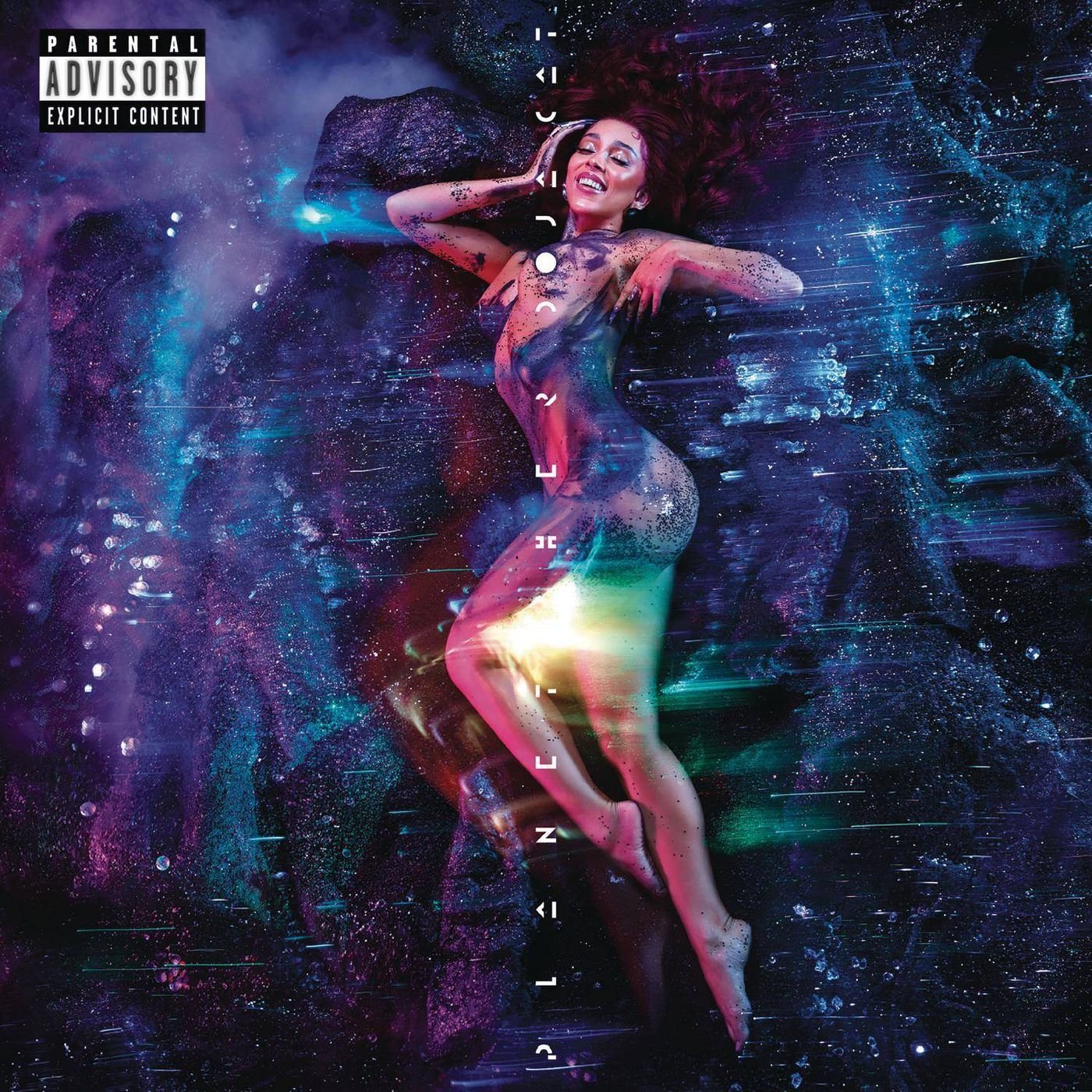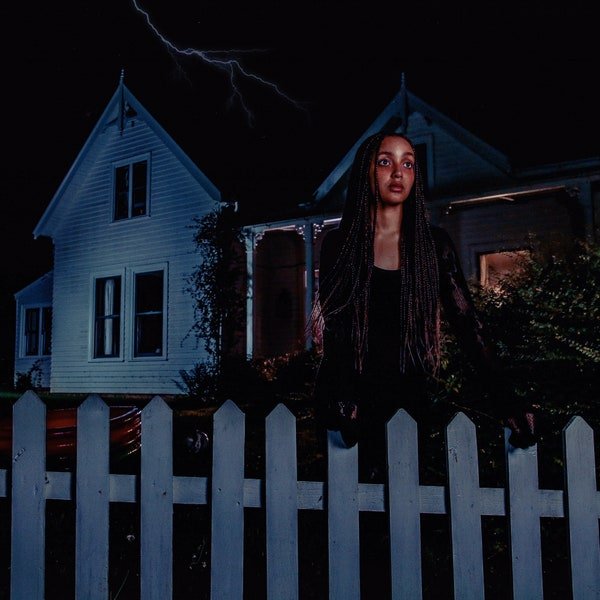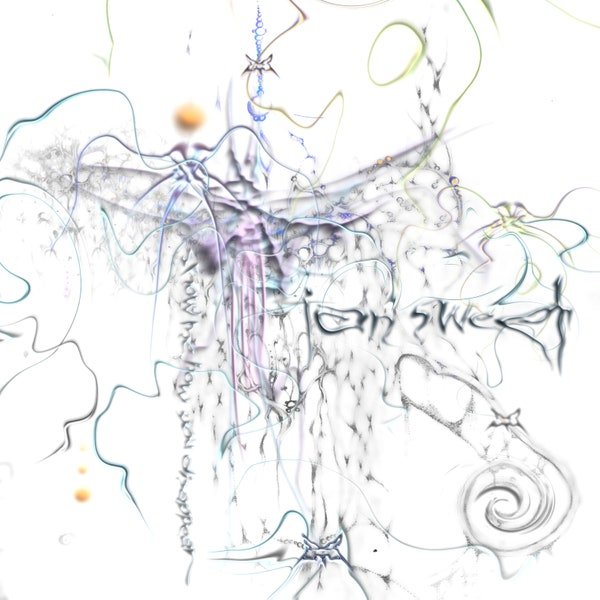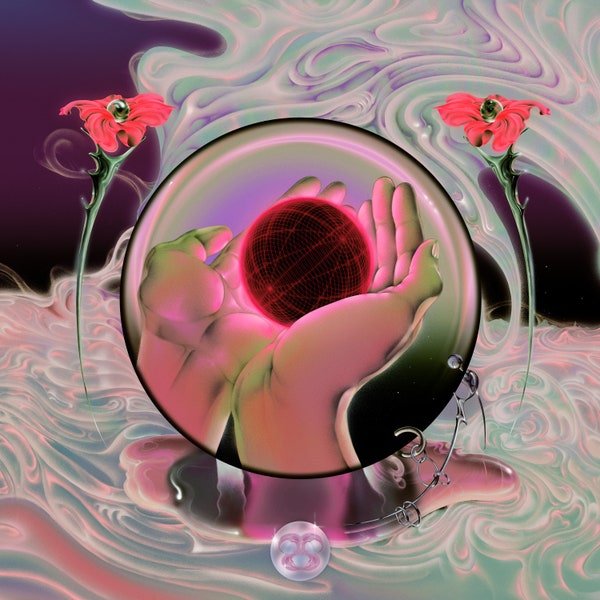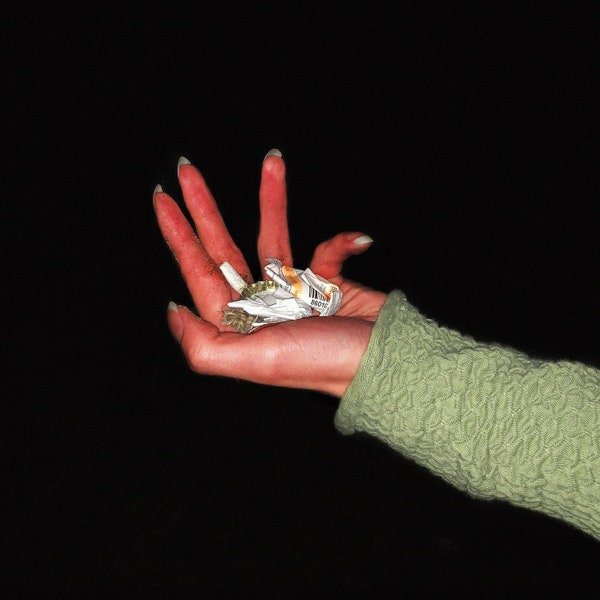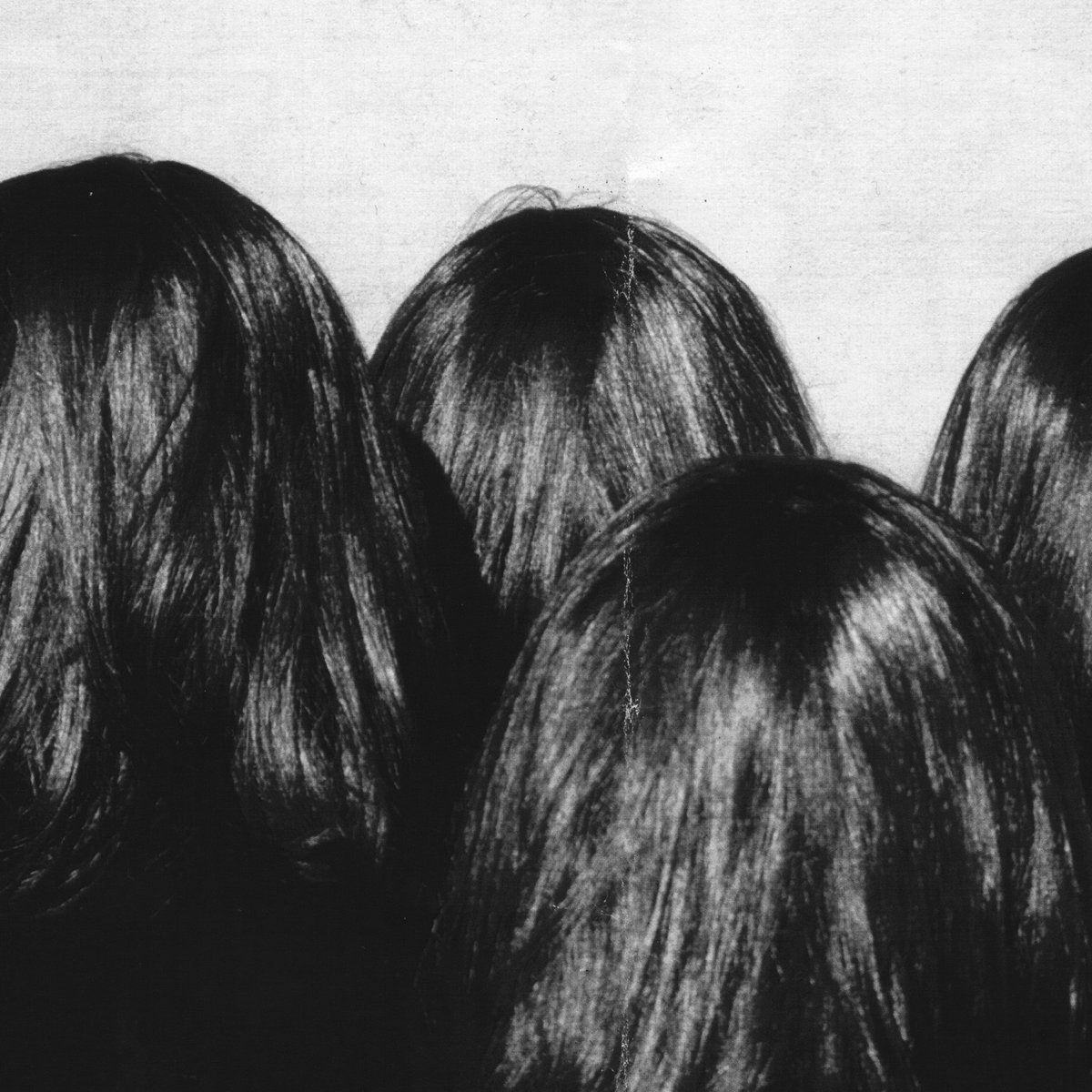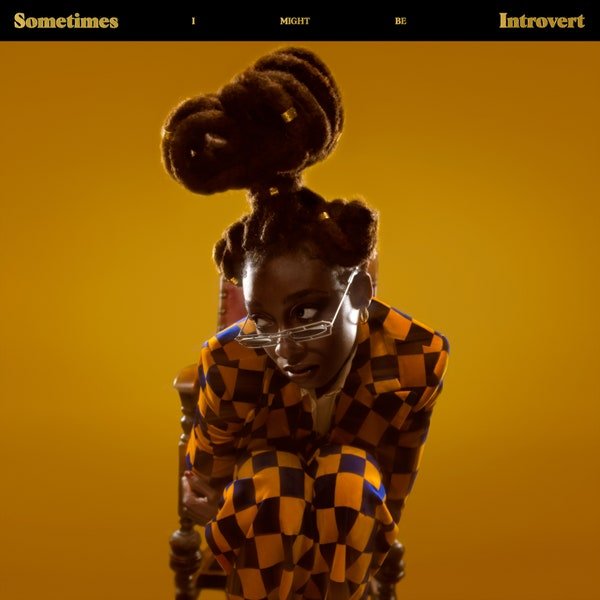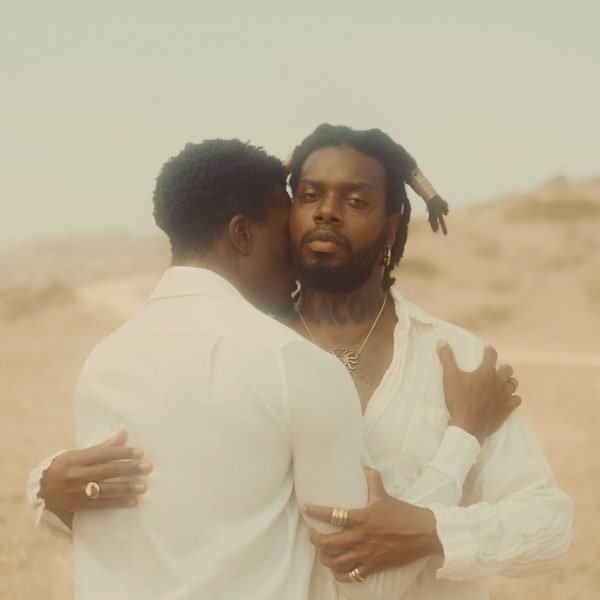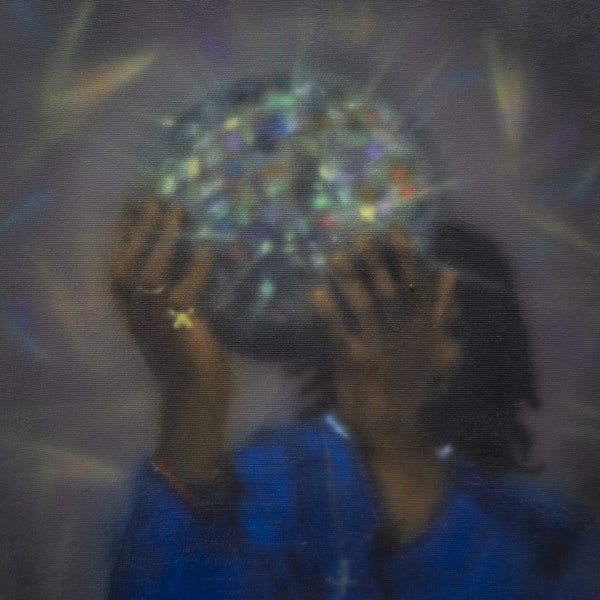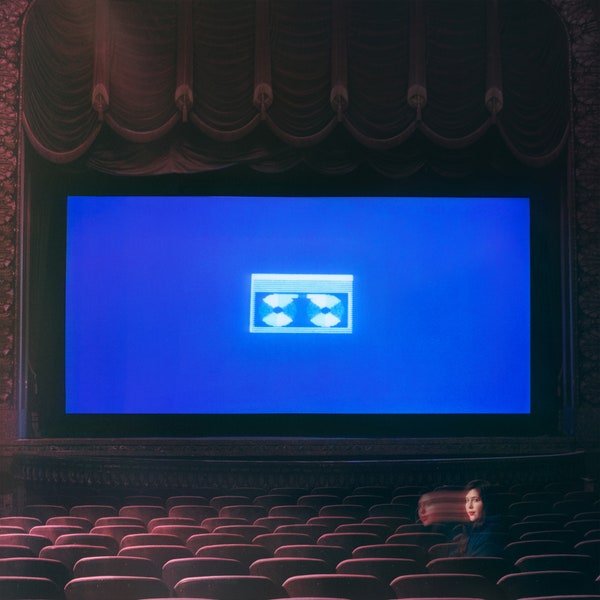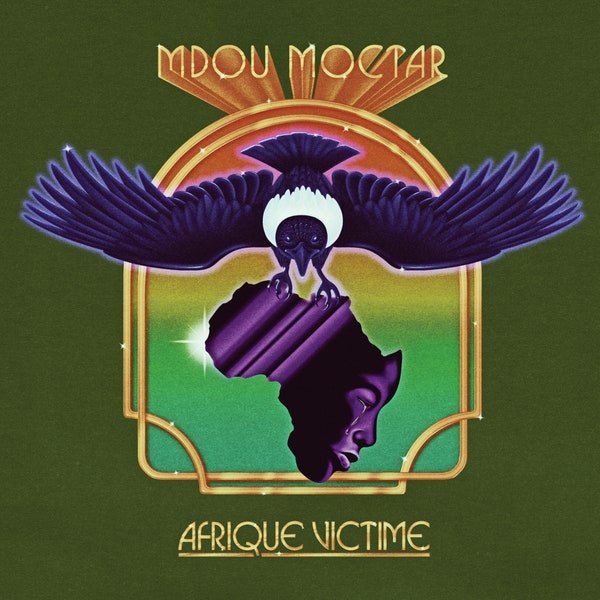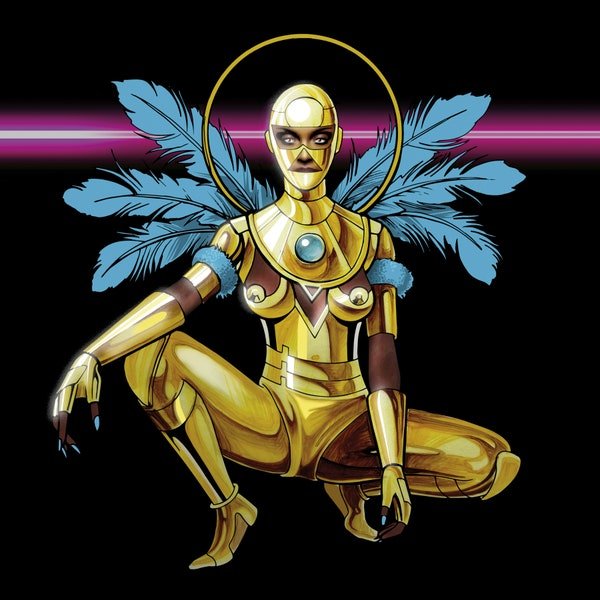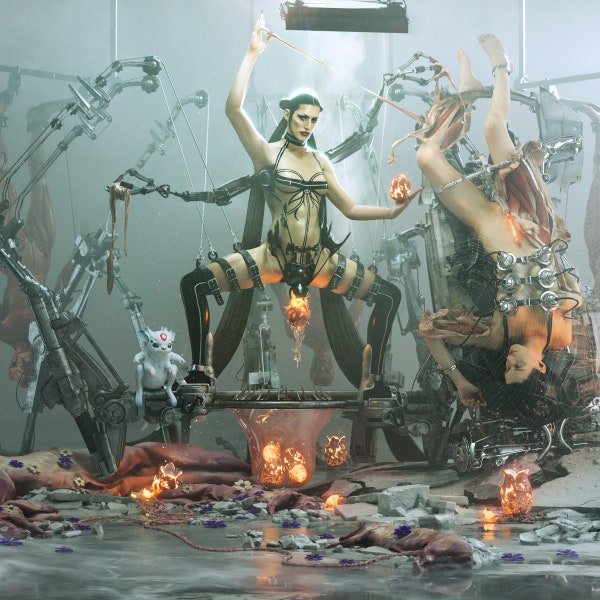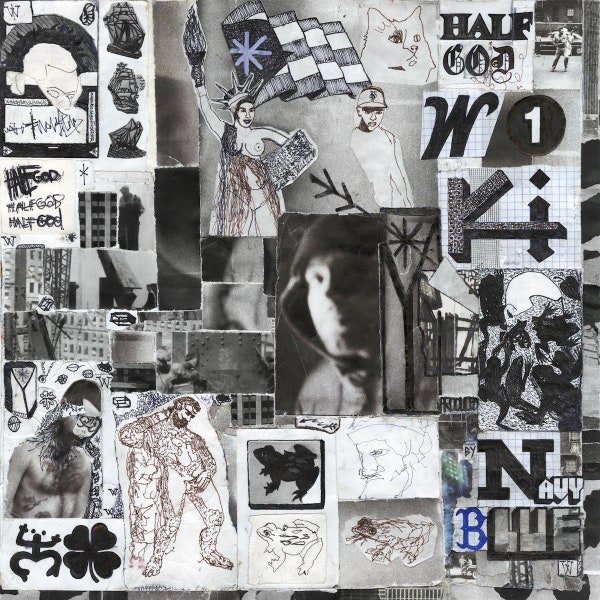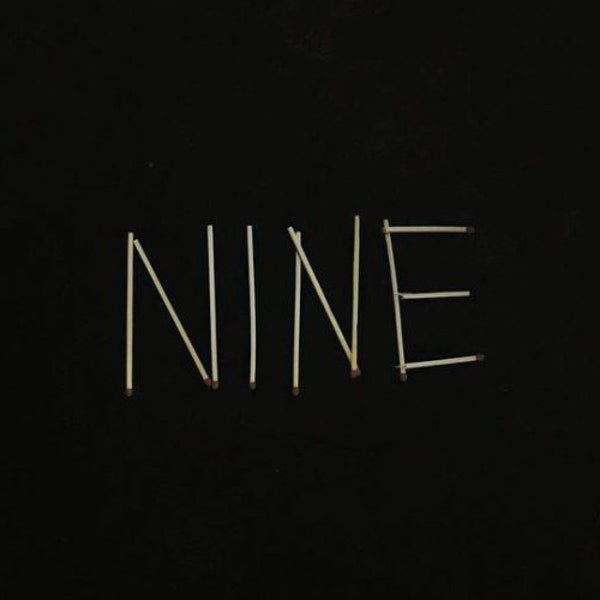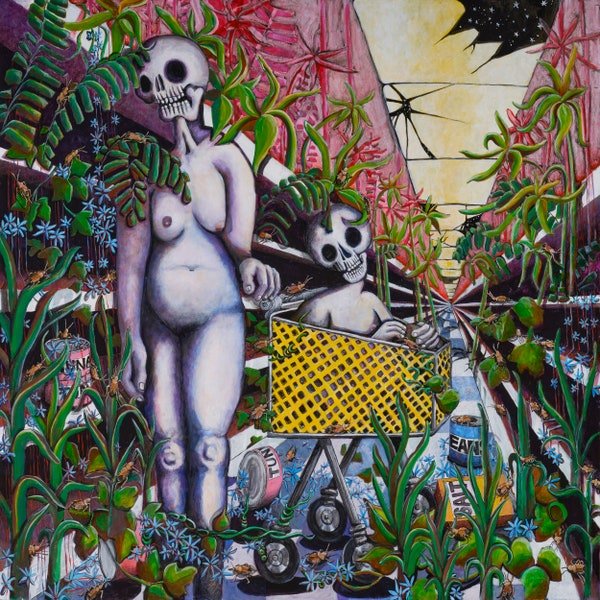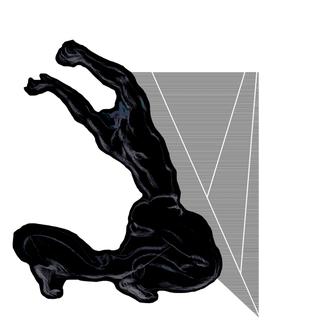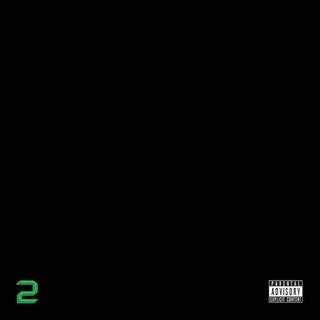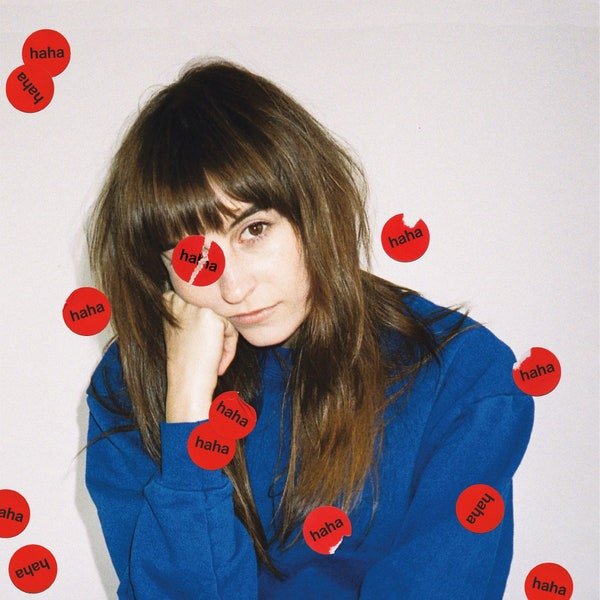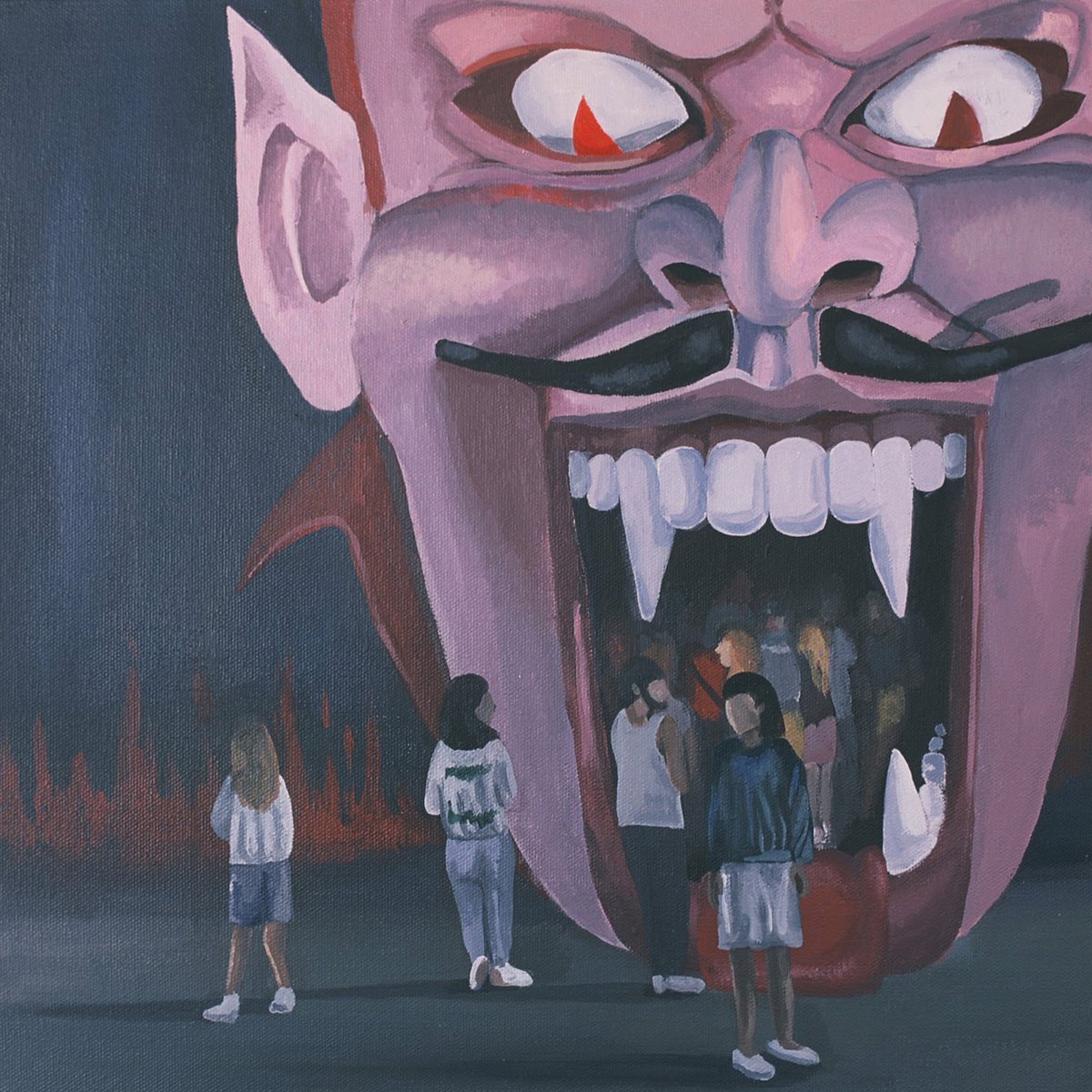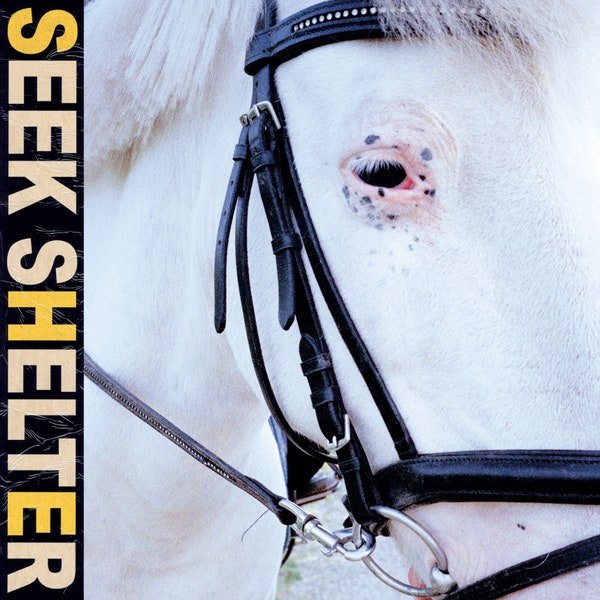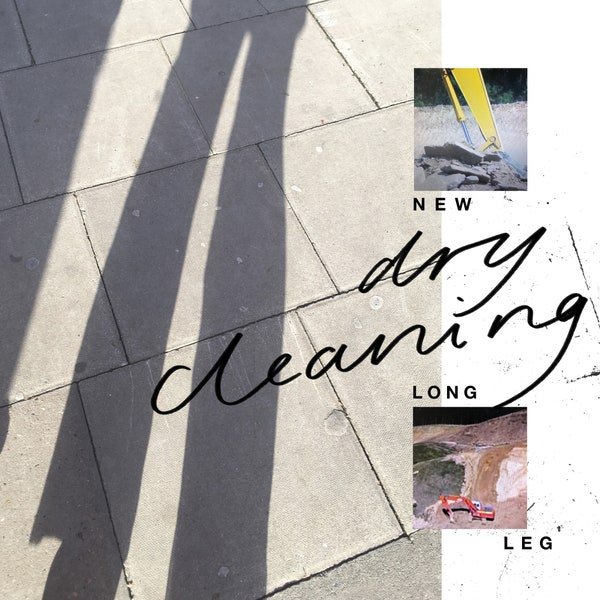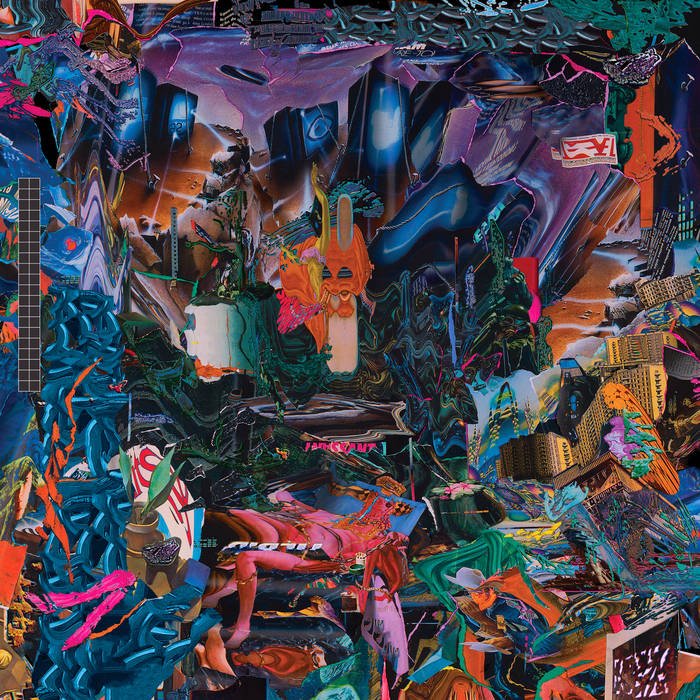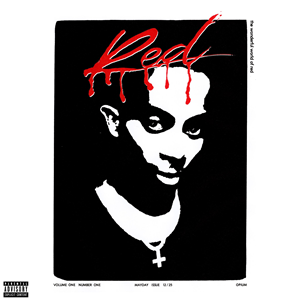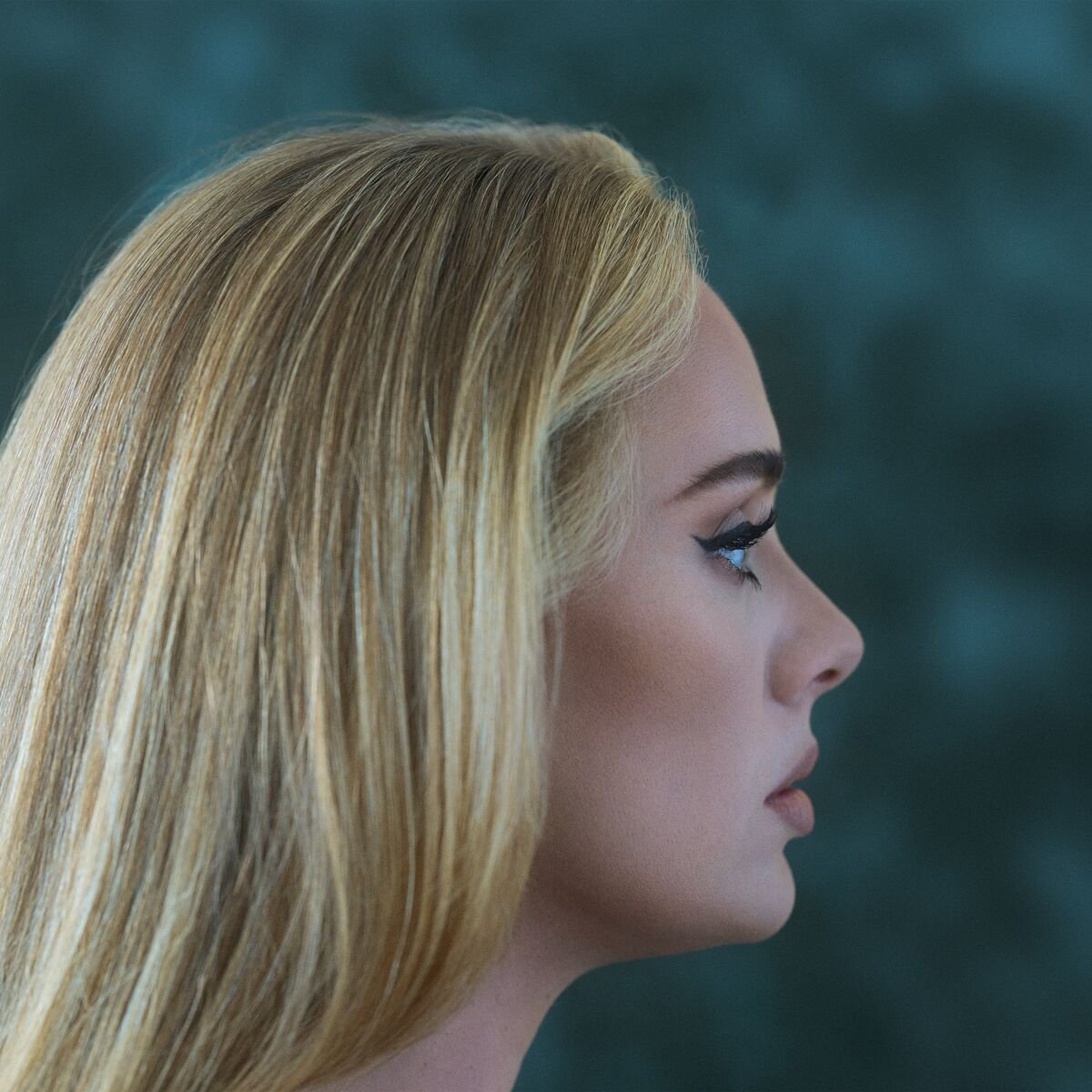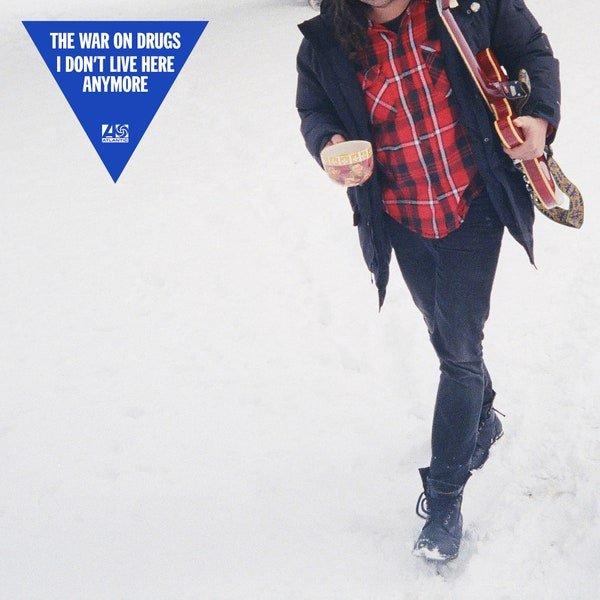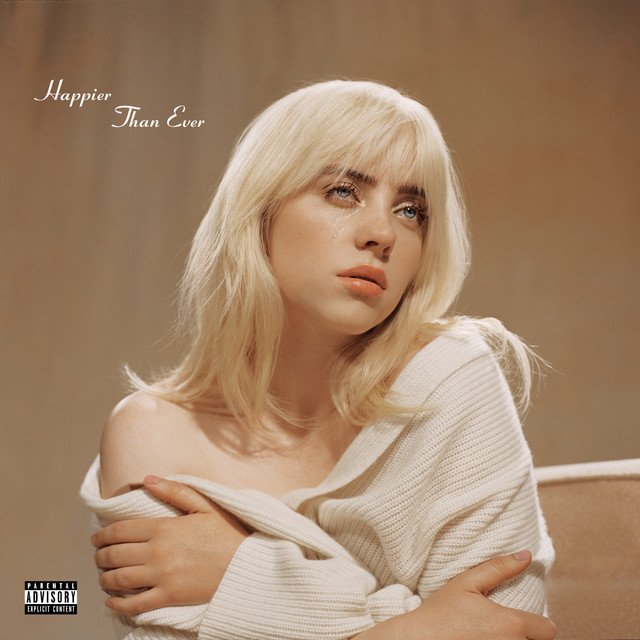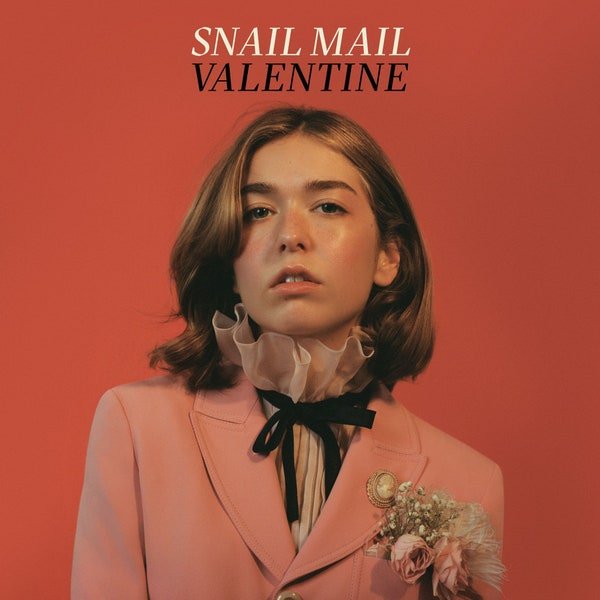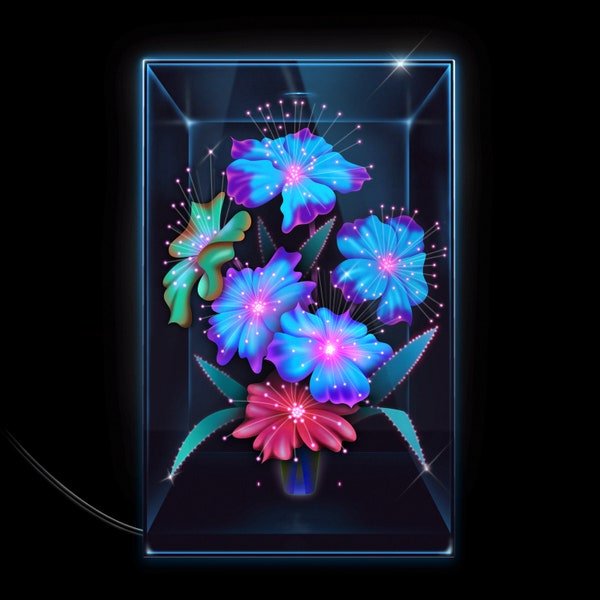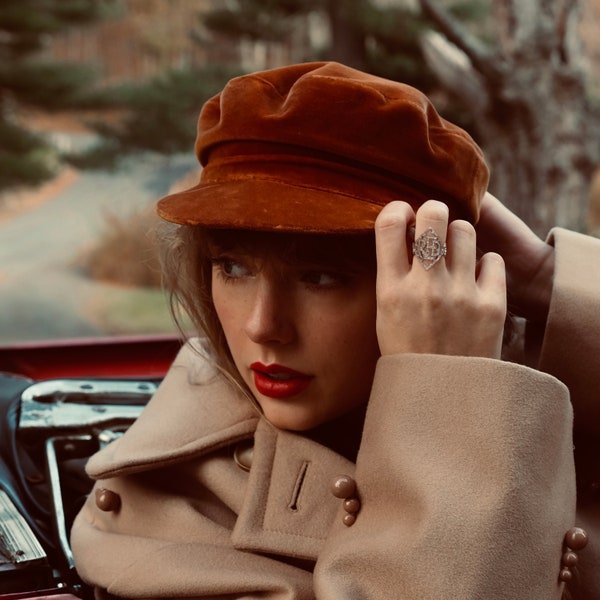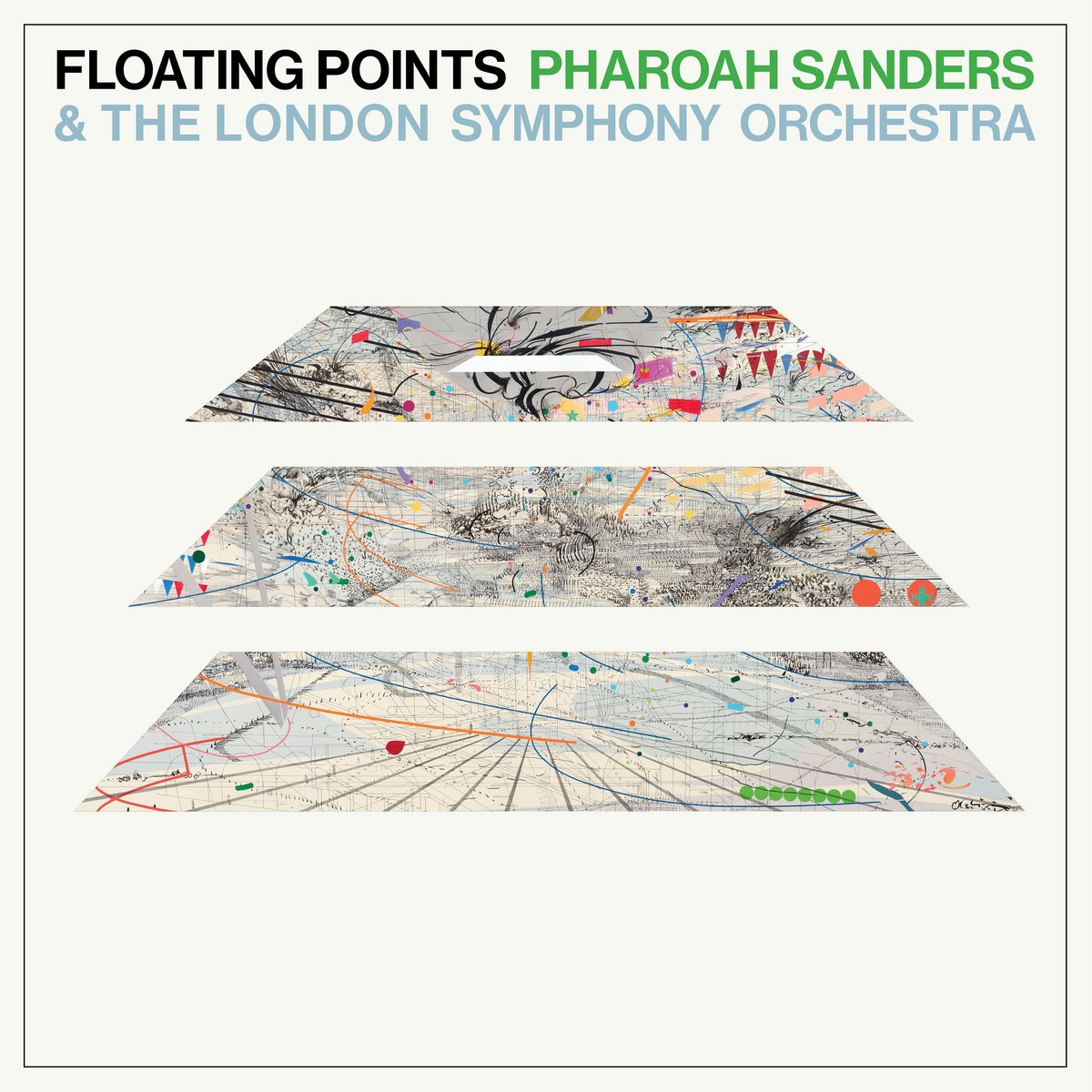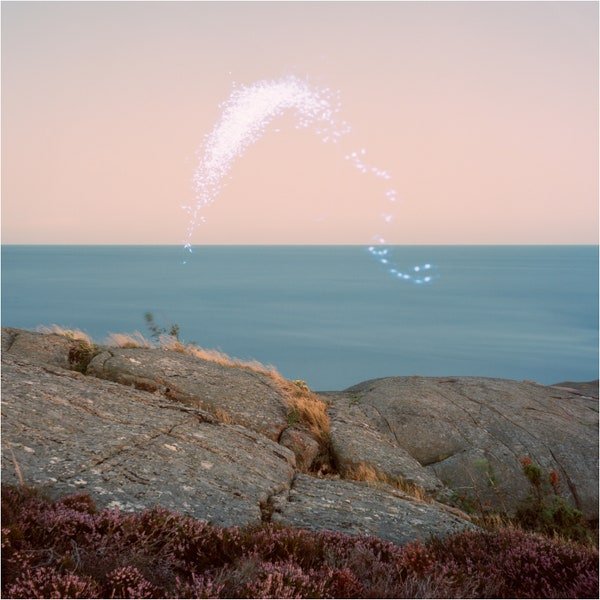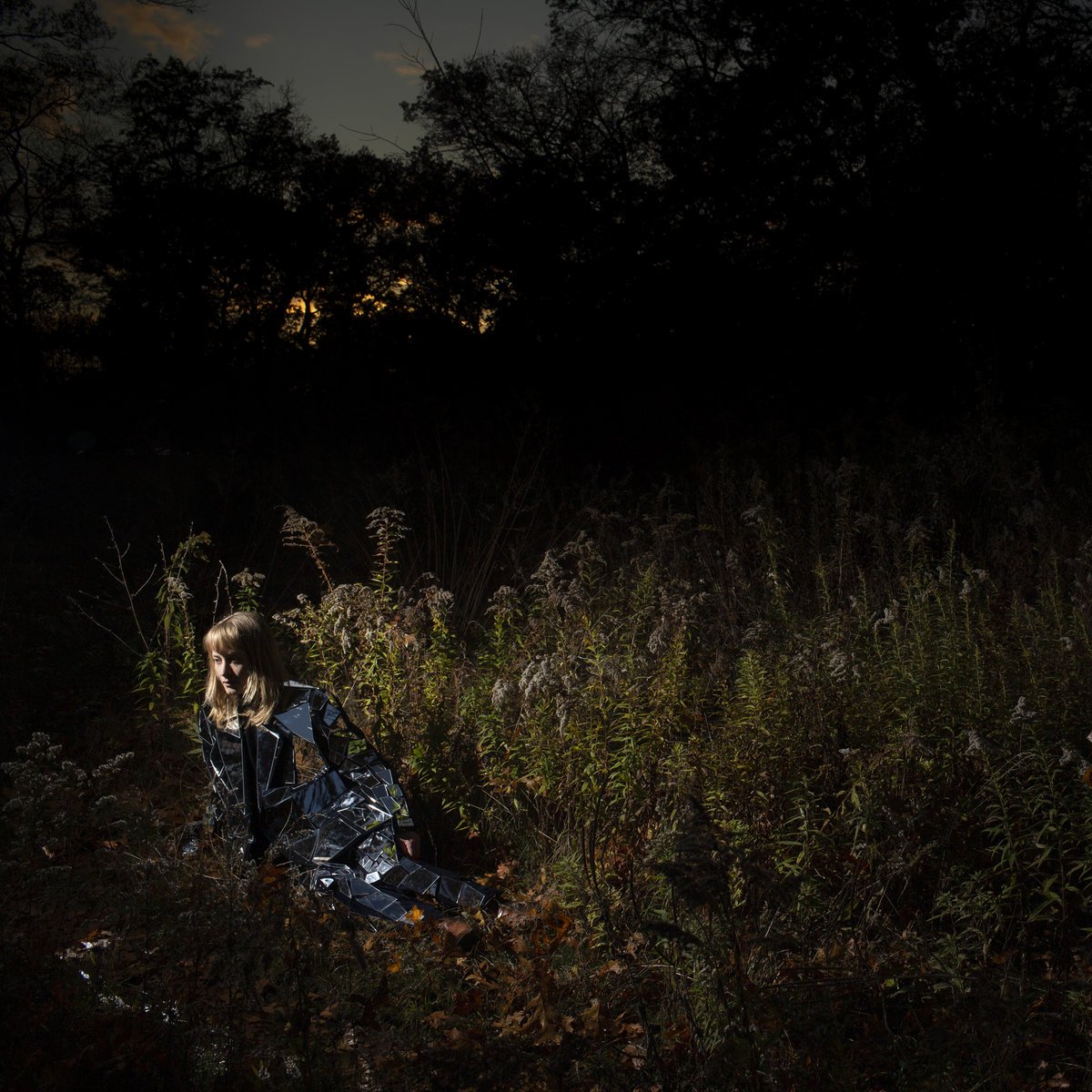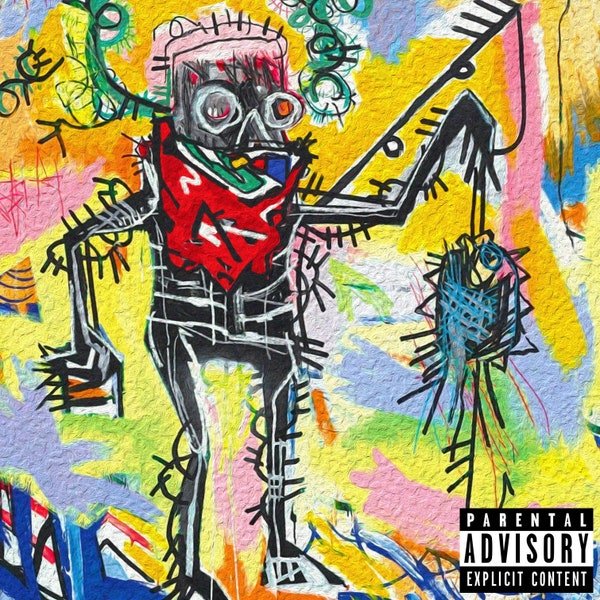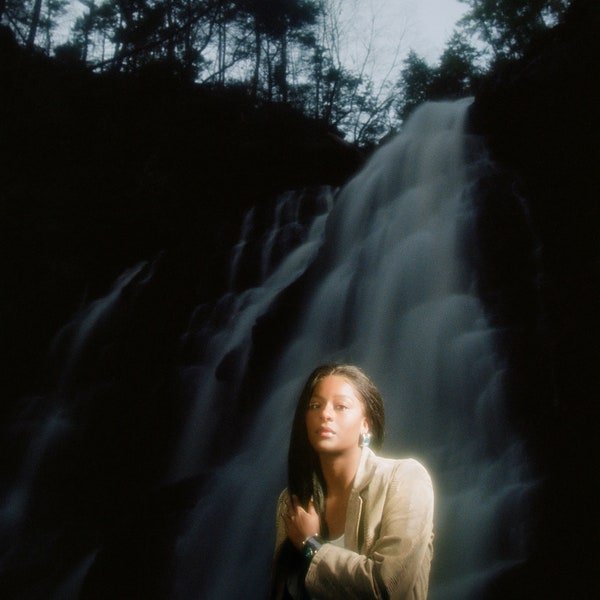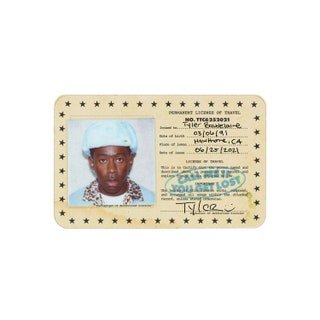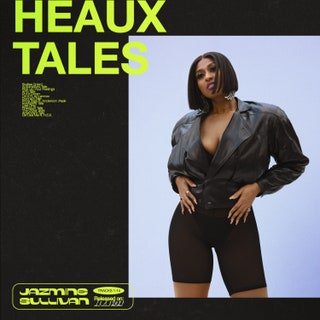This year pushed us to find small joys in the face of constant disappointment and building frustration. Music helped - here are the 50 best albums that kept us going.
Kemosabe, RCA • 2021
50. Doja Cat Planet Her
In her ascension to pop megastar, Doja Cat has remained a distinctly polarizing character. She’s a chameleonic talent, at times disarmingly goofy and wildly charming; this is a woman who first went viral playing a cow, after all. Her theatrical ability to cycle through masks has also earned her some detractors, shrouding her credibility in accusations of rote imitation and speculation on her shadowy past as an internet troll. On Doja’s third album, none of the criticism seems to matter - Planet Her is a collection of mega-smashes so indelible that all the noise is rendered inaudible. The production here is featherweight, celestial bodies of glittering trap-pop and electro-R&B, and Doja bends them to her will. She outshines Ariana Grande and The Weeknd on “I Don’t Do Drugs” and “You Right,” respectively, and improves on Nicki’s “Massive Attack” flow with the inescapable “Get Into It (Yuh).” The best track here is hazy disco cut “Kiss Me More,” on which SZA proves herself Doja’s only capable sparring partner. We don’t learn much here about who the superstar is when no one is looking, a glaring weak spot in her otherwise compelling take on contemporary pop. But when Planet Her sounds this inviting, it’s much harder to care.
Elektra, Parlophone • 2021
49. PinkPanthress to hell with it
Much like the era in which we’re living, the debut from English musician PinkPanthress exists somewhere out of step with the rest of time. to hell with it is quintessentially 2021 - its star emerged from the depths of TikTok, seemingly overnight, and her songs are bite-sized soaps, tailor-made for modern consumption. But the music, which scans through decades of UK electronic and pop, is pure nostalgia. “Just for me” is teenage infatuation distilled (“if you turned around and saw me I would die”), laced around a Y2K-era 2-step bounce, and “Passion” is woven masterfully between the ridges of late-nite drum-n-bass. Breakthrough single “Break it off” is listed as a bonus track, and its secondhand inclusion speaks to the singer’s expedited rise to fame - in a matter of months, PinkPanthress has become a Gen Z superstar, a purveyor of pristine pop in less-than-perfect times.
deadAir • 2021
48. dltzk Frailty
New Jersey musician dltzk released two projects this year, the first of which - February’s Teen Week - propelled them to the front of the digicore movement. On Frailty, their first proper album, they zero in on a sound entirely their own. Equally as indebted to emo as it is hyperpop and chiptune, dltzk’s music explores themes of gender identity and social isolation with an emotional acuity well beyond their eighteen years. Among the influences they’ve cited are Porter Robinson (who also appears on this list), Skrillex, vaporwave innovators such as Blank Banshee and George Clanton, and video game music. They’ve also name-checked MTV cult classic Daria, which shines through in their dry humor and straight-faced delivery - “pretender” drapes “oh, how I lie in bed and feel like dying” in apathy like it’s ordinary chatter. But the musician’s cool, depressive exterior makes moments of complete vulnerability (“goldfish,” “movies for guys”) all the more gutting. “I always change the channel when the couple starts to kiss,” they confide on “your clothes,” turning an individual trigger into a universal pain, a familiar twinge for anyone who’s felt that they’ve grown up in the wrong skin. That’s the brilliance of Frailty; in its ultra-modern spin on teenage angst, dltzk has captured something timeless.
Polyvinyl • 2021
47. IAN SWEET Show Me How You Disappear
“Take love away,” Jillian Medford sings, “[and] you’ll have your whole life to live without the fear of dying.” Her third album as IAN SWEET, Show Me How You Disappear, is a deeply vulnerable record, a series of ghosts creeping out from behind a hardened veneer. When Medford offers to let down her guard on “Sword,” there’s a caveat posed as a threat: “my body is a sword / it gets sharper when it gets ignored.” Her lyrics are grounded in the elements - sun, air, and water are vehicles for life’s immovable constants, and she wriggles desperately to free herself from them. But Disappear works through trauma in real time, and there’s a sense of resolution to her surrender on closer “I See Everything”: “got that air in my lungs,” Medford sings, embracing the peace of acceptance, “I can breathe.”
Luminelle • 2021
46. Magdalena Bay Mercurial World
On their debut LP, Miami duo Magdalena Bay make brainy synth-pop from the hyper-digital eclecticism of late-capitalistic society. Mercurial World flips the consumer politics of Madonna’s “Material Girl” on their head, musing on the impermanence of earthly belongings. On intro “The End,” vocalist Mica Tenenbaum offers an uncomfortable truth, a sarcastic reassurance: “everything comes from and goes to the same place - nowhere … does that help you sleep better?” The music here recalls the progressive mid-‘10s pop of Carly Rae Jepsen and Grimes, and draws influence from a range of genres as expansive as disco, house, techno, and K-pop. They flirt with nineties G-funk on “Secrets (Your Fire),” and cascading digital squiggles consume “You Lose!” like a dying Pac-Man. The slinky sensuality of Tenenbaum’s vocals suggest Fever-era Kylie Minogue, or the Cardigans’ Nina Persson, and Matthew Lewin’s innovative production pulsates with careful, studied detail. On last year’s EP, A Little Rhythm and a Wicked Feeling, the duo aimed straight for the pleasure center - on Mercurial World, they argue pop music can be as cerebral as it is visceral.
Hyperdub • 2021
45. aya im hole
“Thee vibe hath changed,” croaks aya, a fanged grin creeping audibly across her face. The enigmatic Mancunian positions her breakthrough, im hole, along the seams of modern electronic, delivering demented poetry in a coarse rasp. On opener “somewhere between the 8th and 9th floor,” she squawks like a demented myna bird, chanting Suess-like mnemonics in a Lynchian half-logic (“me more/red shoes or blue shoes”). Her incantations glow with dark energy and twisted sexuality - “come over,” she taunts on “what if i should fall asleep and slipp under,” “we can fuck the void out of each other.” The project is also a jaw-dropping exercise in sound design; defined largely by its use of negative space, it crackles in clicks and pops, jetting spiraling synths across the aural plane. Released on storied electronic imprint Hyperdub, its frenetic eclecticism touches on the label’s trademark dubstep, stuttering techno, and footwork-like polyrhythms while defying staunch categorization. In its uneasy lurch, im hole becomes one of the the year’s most magnetizing and disquieting records.
Smalltown Supersound • 2021
44. Lost Girls Menneskekollektivet
On her first full-length with collaborator Håvard Volden, Jenny Hval opens with a genesis story - “in the beginning, there is sound,” she intones, “…there is darkness, and sound travels across it.” In imitation, drums begin to spill into focus, marching through the formation of civilization. Lost Girl’s Menneskekollektivet is a meditation on humanity, a garden of ambient techno tracks that blossom patiently into shimmering philosophical breakthroughs. Hval’s voice is the grounding center, a forcefulcalm in calamitous times. In the album’s closing moments, she turns the trials of existence into art - “when we die, we become paper, charcoals, and a marker pen/meanwhile, we are merely content.” On Menneskekollektivet, Hval finds contentment in her search for spiritual understanding.
Age 101 • 2021
43. Little Simz Sometimes I Might Be Introvert
“There’s a war,” begins Little Simz’s sixth album, Sometimes I Might Be Introvert. An acronym shaped from the artist’s nickname, Simbi, the title suggests inner turmoil rather than disposition. “There’s a war inside, I hear battle cries,” she clarifies, grappling with the living ramifications of the slave trade and African diaspora. Of Yoruba descent, the British rapper feels the restlessness of generational displacement bubble inside of her, weaponizing her demons in service of a greater mission. Her determination to succeed has made her a razor-sharp emcee, relentless and energetic, climbing over competitors on the towering “Standing Ovation” and “Rollin Stone.” But her battle is a noble one - she celebrates black womanhood on opener “Woman,” empowering others to reach the peak of personal enlightenment. On “How Did You Get Here,” she looks back on her struggle with fondness and perspective - “I’m the version of me I always imagined when I was younger.”
Secretly Canadian • 2021
42. serpentwithfeet DEACON
The sophomore effort from Baltimore musician serpentwithfeet is an ethereal celebration of queer, black love in all of its forms - romance, sex, friendship, and shared spirituality. DEACON radiates with warm sensuality and joy - there’s literal fanfare on “Same Size Shoe,” in which serpent goofily imitates a horn section in ebullient harmony. In contrast to his earlier works, which relied on darker, mossier textures, tracks like “Fellowship” and “Amir” draw brighter sounds from world music and ‘00s R&B. The singer’s mellifluous voice is the piloting force, graced with a gospel-trained agility, and his songwriting is cheeky and honest - “the handsomest guys are caring and they’re bi,” he sings on “Hyacinth.” On the same song, serpentwithfeet embraces the divine fortune that comes along with finding love in a dark world - “don’t tell me the universe ain’t listening.”
10k • 2021
41. MIKE Disco!
On the tail of two grief-stricken masterworks, 2019’s tears of joy and last year’s weight of the world, Disco! finds MIKE hopeful, chuckling through the residual pain. His raps are fanciful, bouncy, and even playful this time around (“how I dread life and gave hope to n****s each day?”) The production, credited to his DJ BlackPower moniker, plays co-star, even when tangled in MIKE’s impressionistic rhyme schemes. Opener “Evil Eye” reshapes its sample with Dilla-esque sleight of hand, turning the backdrop into a tapestry of Illuminati imagery. Elsewhere, he rides shuffling jazz grooves and luxurious city pop with elastic ease, a sandbox of sonic delights. Still trudging towards the light at the end of the proverbial tunnel, MIKE is ready for the journey - “Stuck in the midst of it all,” MIKE smirks on “Aww (ZaZa), “struggling? Hmm… nah.”
Sargent House • 2021
40. Lingua Ignota SINNER GET READY
Earlier this month, Kristin Hayer detailed allegations of abuse and assault at the hands of ex-partner Alexis Marshall, frontman of noise rock outfit Daughters. Trauma has long played a central role in her music as Lingua Ignota, but the added context for SINNER GET READY gives her most recent chapter a harrowing gravity. Hayer’s music might be classified as baroque noise, defined by its intensity as much as its classical-influenced intricacy, and SINNER simmers with an ancient, otherworldly darkness. On “I WHO BEND THE TALL GRASSES,” she speaks directly to God, imploring him to smite the bearer of her pain - “Glorious father, intercede for me,” she bellows, “if I cannot hide from you, neither can he.” In a world of unpredictable tragedy and unchecked male toxicity, Hayer has made a chamber of her own control, molding fate to her will.
self-released • 2021
39. Injury Reserve By the Time I Get to Pheonix
The second full-length effort from hip hop experimentalists Injury Reserve was not an inevitability; it’s their first since the 2020 death of founding member Stepa J. Groggs, a shocking loss that put the group’s future as performers in jeopardy. Shrouded in grief and anxiety, By the Time I Get to Phoenix feels necessary and cathartic - the title is ripped from the Glen Campbell classic, a dual purpose header that evokes the song’s deep longing as much as it pays homage to the group’s home state of Arizona. Their sound here is murkier, bristling with barbed static and quiet intensity, akin to the glitch-hop touchstones of Yeezus and The Money Store. Phoenix also suggests an increased sense of musicianship, a jazz-like approach to rhythm and dynamics that lends the project a raw, origanic aesthetic, even buried under walls of digital collapse. It speaks to the duo’s resilience and willingness to keep growing in the face of suffocating sorrow, and on stunning closer “Bye Storm,” member Ritchie with a T finds relief in an age-old adage - “the show must go on.”
Matador • 2021
38. Lucy Dacus Home Video
The music of singer/songwriter Lucy Dacus draws from a painstakingly catalogued library of memories and emotions. On her third studio album, the aptly titled Home Video, she compiles raw fragments into four-minute episodes, gut-wrenching vignettes that reanimate past into present. Like fellow musicians Phoebe Bridgers and Julien Baker (with whom she’s recorded as Boygenius), she’s a virtuosic storyteller, gifted with empathy and acuity - on highlight “Thumbs,” she makes a partner’s reunion with their estranged father sound distinctly personal. Home Video is disarming in its wry humor and unfiltered honesty, its many weighty moments balanced with levity. On single “Brando,” Dacus writes with tossed-off candor, “you called me cerebral, I didn’t know what that meant / but now I do / would it have killed you to call me pretty instead?” It’s the kind of no-holds-barred honesty that sticks with you, the essence of Home Video’s charm and power.
Matador • 2021
37. Mdou Moctar Afrique Victime
It wouldn’t be far-fetched to call Mdou Moctar the Jimi Hendrix of Niger. The Tuareg guitarist and bandleader has been stirring up worldwide acclaim since the 2014 re-release of his debut by Oregon-based label Sahel Sounds, and on his sixth album, Afrique Victime, he’s primed for a breakthrough. Moctar has achieved an unmistakable sound, his guitar chiming like streaks of sun through a shaded valley, and his take on Saharan rock is marvelous and compelling. Shuffling opener “Chismiten” recalls Afrobeat legend Fela Kuti in its call-and-response refrain, and the influence of idol Abdullah Oumbadougou rings through on the earthy “Bismilahi Atagah.” But Mdou performs with an intense and inimitable passion, sifting every ounce of his being through his guitar. The title track burrows deep into generations of injustice and corruption - “if we stay silent, it will be the end of us.” On Afrique Victime, Moctar comes through loud and clear.
self-released • 2021
36. 파란노을 (Parannoul) To See the Next Part of the Dream
“Some of the listeners may have already noticed,” Korean musician Parannoul revealed in a rare interview this May, “but almost all of the instruments [on To See The Next Part of the Dream] are [virtual].” His admission carries an air of shame, a wariness of backlash from the indie rock community. But Parannoul’s music is a conspicuously digital, online phenomenon; shrouding his art in mystery, he’s managed to keep his real-life identity sacred. Beneath its intentional cloaking, To See The Next Part of the Dream is a true-blue shoegaze album, convincing guitar rock from someone who has never learned to play guitar. It’s stunning that canned sounds can sound so vibrant - the smirkingly titled “Analog Sentimentalism” glistens like a swarm of fireflies, a natural beauty pieced together from artificial parts. “Through these works,” Parannoul offers on his Bandcamp page, “I want to leave a little trace of my own, no matter how stupid and anachronistic [a] dream it may be.” On his breakthrough effort, he makes his dream a reality.
Paradise of Bachelors • 2021
35. Mega Bog Life, and Another
Erin Birgy’s third album as Mega Bog is thoughtful and measured, even in its paint-splatter approach to songcraft. Life, and Another is willfully abstract, exorcising demons into ecstatic swatches of color - Birgy has described the recording process as “transforming [her] songs into something positive,” leaning on her bandmates in spiritual harmony and mutual support. Her eccentric folk jazz draws as much from Court and Spark-era Joni Mitchell as it does the shapeshifting alien pop of David Bowie and Kate Bush, contorting itself into mesmerizing figures. The album’s leading half races along with the haphazard abandon of firing neurons, reaching a turning point in spacious, elegiac centerpiece “Maybe You Died.” The turn recalls Bowie’s landmark Low, dissolving gracefully into melancholic, sometimes speechless, reflection. In a literal reading, Mega Bog follows “life” into “another,” viewing existence from the inside out.
Sargent House • 2021
34. The Armed ULTRAPOP
Hardcore collective The Armed is less a band than it is an entity, an inscrutable force that has been furtively reshaping the boundaries of modern punk since its formation in 2009. This year’s ULTRAPOP is an expectedly impenetrable body of work, an explosive cocktail of noise rock and gelatinous electronic pop. The Armed is largely defined, in absence of a discernible core, by its collaborators - ULTRAPOP’s liner notes only identify a group of “additional musicians,” including alt-rock legend Mark Lanegan, metal drummer Ben Koller, and Kurt Ballou of Converge. In a piece for Interview magazine, journalist Max Frank tracked down Dan Greene, the collective’s ostensible leader, though he notes that The Armed “has presented many people as ‘Dan Greene’” over the years. Frank’s interview is littered with mind-boggling nuggets, including one in which the supposed Greene details The Armed’s mission to become “the most invincible, ridiculously jacked, healthiest, disgustingly hot band of all time.” The music on ULTRAPOP is accordingly muscled, steaming at the edges of its pummeling, melodic hardcore. In all the chaos surrounding The Armed’s artistry, they’re rewriting the rules of punk rock by disregarding them altogether.
Merge • 2021
33. Dawn Richard Second Line
“A second line is a dance where everybody is happy and they’re doing how they feel,” explains Debbie Richard, “they’re just getting down.” The fifth full-length from electro-R&B iconoclast Dawn Richard is centered around the voice of her mother, whose insights on everything from New Orleans dance culture to true love give Second Line personal and historical context. Dawn’s best album since 2015’s boundless Blackheart, her latest bulges at the seams with irrepressible energy and multi-faceted talent - she flexes a breathless, tongue-twisting flow on highlight “Bussifame,” and grunts through mesmerizing riffs like peak-era Michael Jackson on “Boomerang.” Each release has added unique dimension to Richard’s music, and here she plays with house and crackling breakbeats like freshly unboxed toys. Second Line registers as a more refined take on the lineage-tracing mission of 2019’s new breed, wider in scope and ambition, more joyful and explorative. She sounds reenergized and ready for the journey, wherever it may take her - “they tell me slow down,” she scoffs on “Bussifame,” “bitch, never me.”
XL • 2021
32. Arca kiCK ii / kiCK iii / kiCK iiii / kiCK iiiii
In late November, electronic innovator Arca released four albums in just as many days, all labeled as follow-ups to last year’s groundbreaking kiCK i. The sheer volume of her output this year speaks to the immensity of her talent, but it’s all the more impressive that each release speaks to a different mode - over course of the kiCK series, Arca explores urbano, industrial, and ambient, sometimes all at once. ii and iii spotlight her skills as a rapper as much as they do her progressive take on sound design, and iiii and iiiii unearth the beauty in her compositions, almost completely detached from her signature focus on tectonic shifting percussion. The series’ artwork is worthy of praise on its own - a far cry from the amorphous body horror of frequent collaborator Jesse Kanda, Frederik Haymen’s work places Arca directly at the center, posing in hyper-erotic expressions of power. Its befitting kiCK’s thematic center of gender expression and body autonomy, explorations that position Arca at the nexus of queer-centric futurism.
Mom + Pop • 2021
31. Porter Robinson Nurture
In the years following his debut, 2014’s Worlds, Atlanta musician Porter Robinson struggled to reignite his creative flame, pinched out in his battle with depression. On his second album, Nurture, he sounds older and more contemplative, phasing out the steep EDM drops of his earlier work in favor of prettier, softer modes of expression. Robinson is a prodigious talent, adept here at bending his music into emotional peaks and valleys. Nurture is at times ecstatic (effervescent highlight “Musician”) and often gorgeous (the pastoral calm of “Wind Tempos”), but always vibrant and honest, almost childlike in its innate grasp of feeling. The lyrics suggest profound growth, the insight of someone who’s trudged through darkness and made it to the other end - “don’t you waste the suffering you faced,” he advises on “Get Your Wish,” “it will serve you in due time.”
Wikset Enterprise • 2021
30. Wiki Half God
His third effort since the dissolution of former group Ratking, Half God showcases Wiki at his introspective best, a free-flowing body of potent storytelling and sly humor. He reaffirms his role as one of New York’s most inventive, imaginative emcees - he’s capable of baffling wordplay (“I’ve been sonning sons since the first son of a gun / since the first someone’s tongue the expression was uttered from”), but his greatest skill is unguarded soul-baring, turning anecdotes into fundamental revelations. Wiki’s storytelling is bolstered here by delicate, jazzy sample work from Navy Blue, who provides a verse on the heartwarming “Can’t Do It Alone,” and its gritty, lived-in sound pallette compliments the record’s everyman appeal. “Not every God-given sign you get is on a hike, on a mountaintop, shown by some sort of light,” Wiki professes on closer “Grape Soda.” On Half God, he finds the blessings in the details.
Forever Living Originals • 2021
29. SAULT NINE
Referred to by media outlets as the “disappearing album,” the fifth release from mysterious UK outfit SAULT was available for purchase for only ninety-nine days. It’s a shame, too, because NINE deserves to be heard - it’s an engrossing, often gruesome depiction of life in the streets of London, and the group’s sharpest body of work to date. NINE wears an effortless musicality; steering away from the sleeker disco touches that accented their earlier works, SAULT embrace the dimmest corners of soul and funk. “London Gangs” and “Fear” wed Surrealistic Pillow-esque psychedelia to bare-bones acid jazz, and the final moments of “Trap Life” approach UK grime through eyes of Timbaland and Arular-era M.I.A. The most effecting cuts here are given room to breathe and vent: “Alcohol” is a desperate cry from the bottom of a bottle, and “Bitter Streets” explores the hopelessness of inescapable circumstance. Closer “Light’s in Your Hands” is a ray of hope, the gentle comforting of a wounded inner child - “don’t ever lose yourself / you could always start again.” But then the album disperses into particles of light, the devastation sets in, and NINE disappears like black bodies, all too often, do.
Saddle Creek • 2021
28. Indigo De Souza Any Shape You Take
North Carolina singer/songwriter Indigo De Souza blossomed into breathtaking color on Any Shape You Take. A departure from the danker, unvarnished sound of her 2018 debut, De Souza’s sophomore album is lent a professional sheen by producer Brad Cook (who worked similar magic on Liz Phair’s excellent comeback this year). Opener “17” lures you in, sour candy in a Top 40-ready wrapper, and “Hold U” recalls pop punk mainstays Paramore’s foray into dance-rock on 2017’s After Laughter. Elsewhere, she explores a pleasingly melodic permutation of indie rock - the guitar licks on “Die/Cry” flutter from the song’s jangling center like butterflies from a tree’s hollow. But the sweetness of the music often betrays the musician’s poetry, which smacks of searing heartbreak and lost innocence. Halfway through highlight “Real Pain,” the song derails into a demented rollercoaster ride of howls and scraping machinery, and it’s difficult to decipher excitement from fear, anticipation from dread. For De Souza, it’s part of the experience.
Wharf Cat • 2021
27. Water From Your Eyes Structure
Much like the stretching, misshapen figure on its cover, the sixth album from Brooklyn duo Water From Your Eyes makes unclassifiable shapes from recognizably human parts. Nate Amos and Rachel Brown giggle through Structure, a giddy half-hour spent flouting expectations. Opener “When You’re Around” is a muted interpretation of Sunflower-era Beach Boys, sunshine pop refracted through a clouded window. Immediately after, things get much weirder - “My Love’s” is orchestral pop fed through a shredder, and “Quotations” (which was inspired by “a YouTube video of some giant machine”) tangles its sticky melody in jagged post-punk squalor. In its most inspired hat trick, Structure ends on a complete reconfiguration of “Quotations,” turning the track inside out and playing among its entrails. A disembodied ensemble of Rachel Browns swirl hypnotically around castanets and jittery, organic breakbeats, reframing its lead vocal from a menacing chant into something pensive and pretty. The duo has described Structure as a “parody of ‘the concept album’,” likening the process of its creation to an inside joke “that shouldn’t be taken too seriously.” They make it easy to laugh along, but impossible to laugh off.
Rough Trade • 2021
26. Dean Blunt BLACK METAL 2
English musician Dean Blunt has been an enigmatic force in underground music for over a decade now. Though he’s cloaked himself in mystery, releasing his projects under various monikers and avoiding interviews, he’s stayed remarkably active, slithering always just under the radar. On the sequel to minor classic BLACK METAL, he’s emerged with his most accessible, least impenetrable work to date, unprecedentedly lucid in its grim storytelling and straightforward musicianship. Here, Blunt raps in vignettes, rancid visions of London’s seedy underbelly. The music is dimly-lit, soaked in reverb, and consistently ominous - it’s frequently beautiful as well, syrupy and languorous. Frequent collaborator Joanne Robertson matches Blunt’s gravelly, half-whispered baritone in lovely, harmonic asides, the Martina Topley-Bird to his Tricky. In fact, trip hop opus Maxinquaye is a spiritual ancestor to METAL’s moonlit minimalism, similarly arresting in its mournful bravado and tortured accounts of a broken, hyper-violent culture. Closer “the rot” is a masterpiece, the most bewitching piece of music that Blunt has ever released. It’s also a glimmer of light at the end of a harrowing tunnel - “you might as well relax, ‘cause the fear is going down,” he rasps. It’s a meditation on mortality, permanence, and human resilience, and a twist ending - like everything else, Blunt suggests, the pain will someday rot away.
Secretly Canadian • 2021
25. Faye Webster I Know I’m Funny haha
Singer/songwriter Faye Webster writes songs for lonely nights at home, diary entries penned by lamplight after a “shower beer.” On her fourth studio album, the marvelously titled I Know I’m Funny haha, the 24-year-old makes indie folk that’s tinged with country and retro soul, steeped in nostalgia but rooted in the present. Webster has a keen sense of humor, disarmingly warm but shy and self-critical; intended as a shield, her wit is often too sharp for her own good, a weapon turned against herself. She allows vulnerability to sneak through in private (“I tried to eat, I tried to sleep/but everything seems boring to me,” she sighs on single “Better Distractions”), but she recounts interpersonal blunders like they’re cringe comedy. On the title track, she offers this gem: “I think your sisters are so pretty/got drunk and they forgot they met me/I made her laugh one time at dinner/she said I'm funny and then I thanked her/but I know I'm funny… haha.” The wordless chorus that follows leaves space for empathy and relatability, and I Know I’m Funny becomes a soundtrack for an entire generation of introverts.
Saddle Creek • 2021
24. SPIRIT OF THE BEEHIVE ENTERTAINMENT, DEATH
On their third studio album, Philly experimentalists SPIRIT OF THE BEEHIVE rip straight through the heart of modern psychedelia, opening a staggering whirlpool of plunderphonic dream pop and bracing noise rock, a sonic playground where almost anything goes. This is the group’s first record as a trio, folding the talents of indie veteran Zack Schwartz, Rivka Ravede, and Corey Wichlin into a singular, shape-shifting vision. The album’s bookends, “ENTERTAINMENT” and “DEATH,” enclose a universe - “I woke up when I heard the blow,” starts Schwartz, evoking the sound of its creation. The record in-between drifts past in flurries of color and texture, and in under forty minutes, the band observes its collapse. “Once was a comedy is now the universe,” ends ENTERTAINMENT,DEATH, “…nowhere left to run.”
Hopeless, Snack Shack Tracks • 2021
23. illuminati hotties Let Me Do One More
Up until her 2018 debut with illuminati hotties, Sarah Tudzin was best known as a producer, lending an expert finish to albums by Porches, Logic, and Weyes Blood. Her reputation as a sound engineer is evident in the crisp, bouncy arrangements on Let Me Do One More, her band’s third album. But its spotlight falls on Tudzin’s talents as a singer, songwriter, and anti-establishment rabble-rouser, and she’s reintroduced here as a full-fledged rockstar. Lead single “MMMOOOAAAAAYAYA” makes its case for song of the year, deserving of the accolade on song title alone. In its half-rapped dexterity, her voice becomes a wily, puddy-like instrument, stretching into whispers and growls at a whim. Her writing is just as inventive; “Threatening Each Other re: Capitalism,” for example, commodifies saliva in service of society’s unquenchable thirst for bottled well-being. Capitalism is an object of preoccupation, clouding even the sunniest of Tudzin’s fantasies - “[it] buzzes around in the back of my mind,” she’s explained, “because art, in essence, is so anti-capitalist.” In this context, Let Me Do One More is art in action.
Mexican Summer • 2021
22. Iceage Seek Shelter
Danish rockers Iceage are a fundamentally different band than they were a decade ago. Their 2011 debut, New Brigade, was sweaty, flailing, and bugged-out, threatening to derail itself at any moment - in a celebratory piece for Jezebel, writer Maria Sherman credits the album for “[bringing] punk conversation [into] a space it had been dormant in for some time.” In the years since, Iceage have reinvented themselves several times over, their stature more imposing with each subsequent release. Elias Rønnenfelt has grown into quite the frontman, swaggering and sexual, sacrificing none of the intensity that first brought the band notoriety; his onstage persona has been described as “[prowling] around like [he’s] possessed by a demon.” On Seek Shelter, his band’s fifth album, Rønnenfelt maintains a merciless grip on his audience, an acting conduit for Iceage’s most electrifying work yet. The title track is their “Moonlight Mile,” inverting the Sticky Fingers formula by placing its grandest ballad at the top of the heap. It’s not, by any means, the only skull-crusher here; “High & Hurt” is a rollicking funk-rock stomper, and “Vendetta” rides a ten-ton Madchester groove like the nineties never left. Most surprising, however, is “Drink Rain,” the fizziest, head-over-heels lovesick song in their catalogue - it’s the type of creative overhaul Iceage has become known for, keeping them one of modern rock’s most unpredictable, consistently thrilling monoliths.
4AD • 2021
21. Dry Cleaning New Long Leg
“Do everything and feel nothing,” Florence Shaw deadpans on “Scratchcard Lanyard,” the dizzying opener to Dry Cleaning’s full-length debut. It’s a profound credo for the ultra-technological, socially isolated age in which we’re living, but it’s delivered with the same understated apathy as the rest of the one-liners on New Long Leg - “I think of myself as a hearty banana,” she proclaims on the same track, “…a woman in aviators firing a bazooka.” Shaw’s stream of consciousness poetry touches on body image (“Unsmart Lady”), emotional toxicity (“Her Hippo”), and “Brexit’s disruptive role in romantic relationships” (“Strong Feelings”), pieced together in a sprawling, multi-dimensional collage. In contrast with the spacier, post-rock leanings of contemporaries such as Black Country, New Road, and Squid (both of whom released excellent projects this year), Dry Cleaning cling to the bare essentials of archetypal post-punk; the arrangements here conjure the terse minimalism of Gang of Four’s Entertainment! and Wire’s Pink Flag, and the intricate, latticed guitar work suggests Talking Heads ’77 and Television as points of influence. But its relative traditionalism yields the spotlight to Shaw, whose gripping delivery makes New Long Leg a unique and electric addition to the canon of post-punk classics.
Roadruner • 2021
20. Turnstile GLOW ON
Hardcore is having a moment. On their third album, Baltimore-based band Turnstile approach underground punk like mainstream pop, doing so without sacrificing any of their wallop. Assisted by producer Mike Elizondo, who honed his skills under the tutelage of Dr. Dre, GLOW ON is hardcore for casual fans and diehards alike, engineered to aim straight for the jugular. Turnstile are known for their no-filler approach - on their previous effort, 2018’s Time & Space, they crammed thirteen songs into the confines of a 25-minute runtime. The band is more patient here, artfully delaying gratification; opener “MYSTERY” cascades in on twinkling synth arpeggios before plummeting in like a ton of cement, a give-and-take method that keeps their longest album (a whopping 34 minutes!) exhilarating and dynamic. “HUMANOID / SHAKE IT UP” transitions from a head-banging thrash to a sludge metal crawl with seamless ease, and “HOLIDAY” drops into the abyss halfway through, only to return with twice the intensity.
Some of most captivating work here exists outside of the sphere of their previous work - art pop genius Blood Orange is credited twice, once on dreamy highlight “ALIEN LOVE CALL,” and once more on the cavernous “LONELY DEZIRES.” Penultimate track “NO SURPRISE” is complete weightless, an airborne slice of atmospheric pop that recalls the work of Kid Cudi more than that of their immediate contemporaries. In its final minute, the album disperses into stardust, a purposeful unraveling that ushers Turnstile into a future of endless possibility.
Dead Oceans • 2021
19. Japanese Breakfast Jubilee
It’s been a big year for Japanese Breakfast’s Michelle Zauner; in April, she published her best-selling memoir, Crying in H Mart, and received two nominations for the 2022 Grammy Awards, including Best New Artist. Her greatest success of 2021, however, is Jubilee, her third and best studio album to date. Her sound has never been clearer or fuller, moving from the cosmic indie rock of Psychopomp and Soft Sounds from Another Planet towards gleaming pop and earthy folk. Zauner has listed two all-time greats in the “third album” category, Björk’s Homogenic and Wilco’s Summerteeth, as influences here - the former comes through in the subterranean mechanics of highlight “Posing in Bondage,” as well as the sky-scraping vocal technique of opener “Paprika.” The rustic grandeur of “Kokomo, IN” fits Summerteeth’s sprawling orchestral rock, but its execution feels unique, glimmering with earnest awe and wide-eyed optimism. “How’s it feel to be at the center of magic?” she asks herself on “Paprika,” swirling in a paradise of her own creation. On Jubilee, Zauner looks for the fleeting ecstasy in everyday life - monumental closer “Posing for Cars,” she closes with a gorgeous two-minute guitar solo that she’s said “expressed everything that couldn’t be said in words” - an exercise in soul-bearing that exposes every layer of her artistry.
Rough Trade • 2021
18. black midi Cavalcade
Towards the end of their tour for 2019’s excellent Schlagenheim, London quartet black midi started to feel boxed in by expectation. Well-regarded by critics and fans for their volatile, improvisational stage show, the band sought to expand their perceived range. “Our whole idea with this album was to keep going towards both sides,” explained frontman Geordie Greep in an interview earlier this year, “…not [to be afraid of] the tranquil, beautiful stuff, but also [to try] and take the crazier bits even further.” In an explosive progression from their debut, the band’s sophomore effort, Cavalcade, is sophisticated, ambitious, and skillfully nuanced. black midi take their name from an aggressively niche sub-genre of video game music, one that’s intended to push computer processors to their absolute limit; opener “John L” takes a similar approach to rock, detonating into a mushroom cloud of raucous free jazz. Across the record, the group stretches their tightly coiled sound into a series of expansive, attentively structured prog rock numbers (“Diamond Stuff,” closer “Ascending Forth”), showcasing their astounding chemistry as an ensemble. But their most arresting development is found in Greep’s dense, evocative poetry - the album’s peak, “Marlene Dietrich,” is carried by his delicate, sensitive portrayal of the late actress. As intended, Cavalcade rips any preconceived ideas about black midi to shreds, reintroducing them as avant-garde visionaries, incredibly versatile musicians that just happen to put on a killer live show.
AWGE, Interscope • 2020
17. Playboi Carti Whole Lotta Red
If 2018’s Die Lit was a manifesto in argument of mumble rap’s viability, Playboi Carti’s third album, Whole Lotta Red, is documentation of the genre at its absolute limits. The rapper’s quirks have evolved into inimitable trademarks, and he stretches his voice here like codeine-soaked putty - “Teen X” is dripping with saccharine falsetto, and opener “Rockstar Made” pushes phrases into angular shapes. Carti has also expanded his emotional range, opening up into unbridled rage (“Stop Breathing”), desire for intimacy (“Control”) and gratitude (“F33l Lik3 Dyin”). It makes for a fully immersive experience, even at twenty-four tracks; on Red, Playboi Carti proves that his brand of asteroid-surfing SoundCloud rap is far from a fad.
Read my January review of Whole Lotta Red here.
Columbia • 2021
16. Adele 30
Last we met Adele, she was twenty-five, with a diamond record under her belt and plenty of living to do. She’s built a career spinning gold from heartbreak, but on 30, her soul is heavier than ever before - the years in-between have born the weight of motherhood and divorce. Age has given the singer’s voice increased agility and dynamic ability, and it’s never sounded better than it does here. It’s also strengthened her pen; the songs on 30 are openly auto-biographical, aching with experience and wisdom. “I’ll be taking flowers to the cemetery of my heart,” she sings on opener “Strangers By Nature,” a symbolic milestone in her search for closure. On the stirring “My Little Love,” she explains the excruciating emotional process of divorce to her son in real time, straining to keep a brave face while he listens with wide-eyed innocence - “mama’s got a lot to learn,” she levels with him, “teach me.” Adele rises from 30 with grace and insight; penultimate track “To Be Loved” is a resilient masterpiece, a show-stopping ballad that evokes the same tragic splendor as Donny Hathaway’s “A Song for You.” “I’ll never learn if I never leap,” she declares, “I’ll always yearn if I never speak.” On 30, she’s found her voice.
Atlantic • 2021
15. The War on Drugs I Don’t Live Here Anymore
On his fifth album with The War on Drugs, Adam Granduciel is larger than life. Brimming with joy over the birth of his son, the singer/songwriter displays his most exuberant, expressive work yet on I Don’t Live Here Anymore. The production, assisted here by engineer Shawn Everett, draws from the biggest, glitziest elements of Born in the U.S.A.-era Springsteen, as well as Tom Petty’s power pop and Bruce Hornsby’s delicate adult contemporary. Granduciel’s songwriting follows suit, dramatic in its sweeping sincerity; on “I Don’t Wanna Wait,” he milks the chorus for all its got, delivering a lovelorn “I’m starving!” like its a physical imperative. The title track, which receives a hand from indie pop duo Lucius, is the album’s hulking peak, an ecstatic, life-affirming anthem that makes its source material seem static in comparison. The War on Drugs are capable of truly heart-rending material - “Living Proof” and “Rings Around My Father’s Eyes” are some of the most devastating ballads in their repertoire - but I Don’t Live Here Anymore is an undeniably uplifting record, a celebration of life’s silver linings. “Ain’t the sky just shades of gray,” Granduciel ponders on closer “Occasional Rain,” “until you’ve seen it from the other side?”
Kranky • 2021
14. Grouper Shade
Liz Harris’ music as Grouper has always seemed just out of reach, a secret overheard from the next room. Calling Shade her most accessible collection might be a stretch, but it may be her most intelligible; many of the songs here are sonorous and pristine. Early highlights “Unclean mind” and “Ode to the blue” are immediately gratifying, just Harris and her guitar. In its latter half, her lyrics become perceptible - closing number “Kelso (Blue sky)” comes through loud and clear, an immense and inviting development. The magnified sound quality even allows subtle details, like an owl’s hoot, to slip through the cracks. The songs that are cocooned in distortion are done so with intent - the prickling edges of “Disordered Minds” add harmonic value to the song buried within - but Shade’s most tangible moments offer a wider, clearer window into Grouper’s often shrouded artistry.
Darkroom, Interscope • 2021
13. Billie Eilish Happier Than Ever
Billie Eilish has quickly become one of pop’s most reliable and influential acts. Her second album, Happier Than Ever, is a breathtaking evolution, a far cry from the youthful, winking horror-pop of her 2019 debut. Her brother FINNEAS provides the scenery again, a stylish, understated collection of skeletal synth-pop and soft, insulated balladry. But it’s Billie’s voice that gives the music color, layered and present. Her characteristically hushed delivery has become ubiquitous (see devoted disciple Olivia Rodrigo), and she doubles down on her trademarks here. Even so, her voice has matured fabulously over the last several years, now huskier and more soulful. Single “My Future” is her most nuanced performance to date, swelling and receding artfully, indulging in pretty melismatic flourishes. She stretches her range into a strained howl on “Oxytocin,” and stacks herself into choral harmony in the early moments of “GOLDWING.”
More than ever before, the focus on Happier rests on her skills as a songwriter. Her lyrics are imbued with razor-sharp wit and humor, cutting, acerbic, and sometimes self-effacing. “The strangers want me more than anyone before,” she muses on opener “Getting Older,” “too bad they’re usually deranged.” Thematically, she reckons with self-esteem, body image, and the horrors of growing up in the spotlight. “Your Power” and “Male Fantasy” are gorgeous and crushing reflections on the power dynamics of gender, and spoken interlude “Not My Responsibility” stares back at the male gaze with insight and resilience. “Though you’ve never seen my body,” she retorts, “you still judge it, and judge me for it. Why?”
The title track here is a career high, mutating from gently strummed acoustic pop to clipped, hair-razing rock with fluidity and grace. As an album title, Happier Than Ever is part tongue-in-cheek, part cautious optimism - “I’m happier than ever, at least that’s my endeavor,” Eilish quips in the record’s early moments. As a song, it’s a fully loaded kiss-off to an emotionally abusive ex, her endeavor in practice.
Matador • 2021
12. Snail Mail Valentine
On her debut, 2018’s Lush, Snail Mail’s Jordan knit starry-eyed bedroom rock out of timid crushes and muted desire. Her sophomore effort, Valentine, finds her bolder, feistier, demanding attention where she once plead for it. The stunning title track is strung-out, almost agitated; “why’d you wanna erase me?”, she wails, more a command than an ask. Jordan’s voice is hoarser, more confident, pushing thoughts out with urgency. “Drag me with you to Nirvana, baby, take me all the way,” she dictates on “Headlock,” flipping the dynamic of earlier, more passive works such as Lush’s definitive “Pristine.” Valentine is more musically adventurous, too - the arrangement on “Benjamin Franklin” flirts with both hip hop and new wave, and “Forever (Sailing)” recalls the trip hop-influenced folk pop of Sarah McLachlan and Natalie Imbruglia. Its quietest moments, however, are its most alluring; “Light Blue” is gorgeous in its lilting, orchestral pop, and the Elliott Smith-indebted “c. et. al.” offers her most astounding vocal performance to date. There’s a thematic consistency to Valentine that highlights the intimacy of Jordan’s songwriting, her affections centered on a character named Mia. The stunning closer is addressed directly to her lover - “lost love, so strange,” she whispers, her voice cracking with desperation, “and heaven’s not real, babe.” But even at the mercy of love’s hard hands, she’s in control of her own destiny - “I love you forever / but I’ve gotta grow up now.”
ANTI- • 2021
11. Xenia Rubinos Una Rosa
On her first album in five years, Connecticut musician Xenia Rubinos reflects on love, loss, and her experience as a Latinx woman. Una Rosa leans into her roots - the burbling flamenco of “Ay Hombre” lends itself to the neo-traditional theatrics of Latinx contemporaries such as Rosalía and Arca, and “Sacude” falls somewhere between deconstructed reggaetón and neon-lit salsa. The jazzy shuffle of “Cógelo Suave” hews closest to the earthy neo-soul of her previous effort, 2016’s Black Terry Cat. Elsewhere, Rubinos transmits through twisting atmospherics and rumbling electronics, a makeshift echo chamber of intergenerational trauma. She is at times sorrowful, angry, and anesthetically numb; single “Who Shot Ya?” embodies all three emotions, mourning the yet-unavenged murder of Breonna Taylor. The track’s stuttering hook - poison dart tosses of a half-rhetorical “get it??” - seeps through clenched teeth, an audible release of body-deep tension. On “Don’t Put Me in Red,” she rages against the government-sanctioned concentration camps at the border, and “Working All the Time” pinpoints the sheer exhaustion of living in a system designed to oppress. The rawest cut here is “Did My Best,” which mourns the death of a lover with desperation and deep regret. It’s the reddest rose in Una Rosa’s stirring bouquet, a monument to the power of release.
Republic • 2021
10. Taylor Swift Red (Taylor’s Version)
Somewhere in the midst of the legal battle to reclaim the rights to her music, Taylor Swift hit her stride - she released two albums of new material last year, the much-acclaimed folklore and the excellent, understated evermore, which has been unfairly relegated to a footnote in the context of her sudden creative growth spurt. But in her ambitious mission to re-record her back catalogue, she’s discovered that Red might still be her magnum opus.
It’s remarkable how well these songs stand up almost a decade on; Taylor’s abilities as a songwriter have always far outstretched the confines of her age, but listening to Red, it’s baffling that a 22-year-old could’ve written music this eloquent. Taylor’s Version improves on the original in almost every way; like this year’s revisit of Fearless, the arrangements are tedious in their faithful recreation, but the instruments are brighter, the sonic range fuller. Most improved is Taylor’s voice, which has sharpened with time, adding new textures to still lively material. The chintzy dubstep-pop of “I Knew You Were Trouble” sounds dated, but Swift brings renewed energy to its indestructible hook. “22” sounds even giddier than it did, an accomplishment from someone who is, by all logic, no longer feeling 22.
“All Too Well,” arguably the best song Taylor has ever written, is stretched into a ten-minute epic, and its ridiculous excess is outdone only by its brilliance. The new verses are piquant, haunted and tragic; in one of her finest turns as a poet, she recalls waiting by the front door for her lover to return, her father looking on, remarking that “it’s supposed to be fun turning 21.” Loss of innocence is a lingering specter on Red, summarized beautifully on the newly unearthed Phoebe Bridgers collab, “Nothing New”: “how can a person know everything at eighteen and nothing at twenty-two?”
A decade on, Taylor is consumed with the intricacies of aging. On folklore stand-out “cardigan,” she reflected on her maturation in the spotlight - “when you are young they assume you know nothing.” In her revision of Red, she reveals that she knew more than you’d think.
Luaka Bop • 2021
9. Floating Points, Pharoah Sanders & The London Symphony Orchestra Promises
Spiritual excavation has long been the crux of Pharoah Sanders’ music. One of the last living disciples of John Coltrane, Sanders guides his saxophone to the same end as his mentor, a wandering extension that reaches into the cosmos for fleeting, eternal knowledge. At 81, he stretches his weathered tenor as capably as ever, each harmonic overtone a volume of scripture. Promises, a collaboration with electronic innovator Floating Points and the London Symphony Orchestra, is an exploration of a single, boundless motif, each mysterious movement adding new layers of subtle gravitas. In its final four chapters, the piece transforms in spellbinding leaps, unraveling into flowering orchestral touches, intergalactic synth arpeggios, and fathomless organ drones. Promises offers a bracingly modern take on jazz, pushing fearlessly in all directions while remaining faithful to Sanders’ unique vision. If this is the icon’s final masterpiece, it will be one well worthy of his legacy. If it’s not, untouched expanses of universe await his next adventure.
Ba Da Bing • 2021
8. Cassandra Jenkins An Overview on Phenomenal Nature
“I’m a three-legged dog,” starts Cassandra Jenkins’ second album, “looking for what I lost.” Now in her late thirties, the Brooklyn musician stops to take in her surroundings on An Overview on Phenomenal Nature, allowing years of grief to catch up with her. Across the project’s seven tracks, Jenkins explores loss in numerous forms; she pens a tribute to an incarcerated friend on “American Spirits,” mourns the death of indie rock veteran David Berman on “New Bikini,” and channels the universal yearning for connection in the pandemic age on “Crosshairs.” An Overview marvels at the healing power of natural world’s innate wonders; “baby, go get in the ocean,” a friend advises, “if you’re bruised, you’re scraped, you’re any kind of broken / the water, it cures everything.” But Jenkins also highlights the frequent, but oft-overlooked, beauty found in human nature - “Hard Drive” is a poignant masterpiece, one of the year’s most perceptive, open-hearted successes. She tracks her own emotions through experiences with strangers and acquaintances, finding resolution in an impromptu reading with a psychic - “we’re gonna put your heart back together,” her friend Peri pledges. “So all those little pieces they took from you, they’re coming back now.”
Domino • 2021
7. Tirzah Colourgrade
The second full-length from Essex native Tirzah channels the singer’s singular brand of homespun art pop into a living microcosm, an icy, mechanical world with a warm, beating heart. On Colourgrade, producer and longtime collaborator Mica Levi offers R&B by way of sound collage, gluing together analog drum loops and seasick keyboard riffs with industrial-grade bass. Tirzah writes in fragments, stream-of-consciousness lyrics that circle tangibility. “You know I’m yours, and you’re mine,” she commands on “Tectonic,” “as soon as you meet my face.” Even in the absence of concrete thought, her voice is a powerful tool, a soul-plunging force that holds unwavering in the throes of intense emotion - the centerpiece here is the wordless, six-minute meditation of “Crepuscular Rays,” a swirling voyage that radiates absolute contentment.
Between Colourgrade and 2018’s Devotion, Tirzah became a mother, an instinctual shift that resonates from deep within her body. “I got you, you got me,” she beams on “Beating,” “we made life - it’s beating.” She remains adept at turning small moments into life-sized monuments; “ooh, she’s dreaming / my baby / ooh, she’s sleeping tonight,” she whispers on “Sleeping,” a stirring lullaby that captivates with the power of twinkling crib mobile. On the Prince-esque “Sink In,” she lets everything in at once (“for that feeling / I am sinking”), surrendering completely as Levi’s dulcet chords wash over her. That’s Tirzah’s real gift - in a world that threatens to swallow us in worry and rumination, she lets Colourgrade live fixedly, completely in the moment.
Sub Pop • 2021
6. Low HEY WHAT
On 2018’s brilliant Double Negative, slowcore veterans Low dismantled their trademark sound, lowering themselves steadily into corrosive acid. Their thirteenth album, HEY WHAT, builds them back up from the remnants, a colossal magnet recollecting damaged granules of digitized sound. The affair is engineered by BJ Burton, who rose renown with his work on Bon Iver’s 22, A Million, and he envelops the duo in thick walls of artificial harmony and self-destructing sound structures. Low’s recent music has leaned more heavily into noise, frying their delicate vocal interplay in distortion, but they remain best at making the most of the stillness. Lead single “Days Like These” is a semi-apocalyptic, pandemic-summoning vision cut into distinct halves, one part an atomic bomb of pent-up anxiety, the other a barren landscape, blowing dust. On closer “The Price You Pay (It Must Be Wearing Off),” Low sit at the precipice of judgment day, watching humanity crumble - “either side you’re on,” they command, “you get what you deserve.” Thirty years into their career, they continue to bring life to the liminal spaces in-between.
Fat Possum • 2021
5. The Weather Station Ignorance
“I should get all this dying off of my mind,” Tamara Lindeman chastises herself. “I should really know better than to read the headlines.” It’s a relatable sentiment for anyone who’s half-aware of what’s going on in the world today. But instead of burrowing her head in the sand like so many of us are apt to do, she faces uncertainty head on with Ignorance, her fifth effort as the Weather Station. The album was conceptualized as a response to the growing threat of environmental collapse, inspired by her work with climate change activists in her home town of Toronto. She’s described the awareness of her own footprint as an “oozing, festering wound that [she wasn’t acknowledging,” and it creeps into every aspect her life here. “Separated” is ostensibly about social media’s disintegrating effect on interpersonal boundaries, but her thoughts come through in images of rivers and fields. On “Parking Lot,” she’s torn apart by the beauty of nature: “you know it just kills me when I see some bird fly.” One of the most striking pieces here is “Robber,” which personifies the capitalist greed that has led our planet so far along the path of its demise. “I never believed in the robber,” she sings - for Lindeman, ignorance is bliss, but awareness is necessary.
Griselda • 2021
4. Mach-Hommy Pray for Haiti
Long the secret weapon of Buffalo crew Griselda, Mach-Hommy is a rapper’s rapper, a virtuosic emcee with a penchant for intricate phrasing and double-take-worthy metaphors. On his magnum opus, this year’s Pray for Haiti, he pens a love letter to his Haitian heritage, lapsing frequently into Creole. He draws parallels between the rampant violence in his hometown of Newark, New Jersey, and the crumbling infrastructure of Haiti, both riddled with corruption and poverty.
Hommy’s music is also deeply entrenched in hip hop tradition: Griselda has long hewed to the Wu-Tang mold, and Westside Gunn fittingly plays the Ghostface to Hommy’s Only Built 4 Cuban Linx-era Raekwon. Mach draws influence from a diverse slew of legends, however; his rich baritone often recalls that of Brooklyn legend Yasiin Bey, and he artfully weaves sly references to Jay-Z, MF DOOM, and Lil Wayne into his verses. Through all of its evident source material, Haiti emerges with with something distinct and original, a nuanced take on drug rap that vibrates with color like the Basquiat portrait on its cover.
The spotlight on life in Haiti is timely - mere months after Pray for Haiti’s release, U.S. border guard agents attacked a group of Haitian immigrants crossing the Mexican border, a blip in the media flood of xenophobic and racist atrocities our government continues to sanction. The tragedy and its rapid disappearance from public consciousness give Mach-Hommy’s gritty portrait due context - in the ever-evolving discourse on the erosion of democracy and the evils of wealth inequality, Haiti deserves a voice.
Mexican Summer • 2021
3. L’Rain Fatigue
On the roiling intro to Taja Cheek’s second effort as L’Rain, collaborator Quinton Brock poses a searing, timely inquiry - “what have you done to change?” On Fatigue, Cheek scours in earnest for an answer, a brave mission in an era that shifts restlessly around us. Her music is grounded in soul, jazz, and gospel, but she’s dead set against being pigeonholed - drawing inspiration from philosophy, art, and poetry, L’Rain delights in viewing Brock’s ask from every possible angle.
It’s apparent in her genre-warping musicianship - the cyclical harmonies at the bed of highlight “Find It” recall Sung Tongs-era Animal Collective, and the slithering vocal treatments on “Blame Me” and “Suck Teeth” mirror psych-folk auteur Moses Sumney, whose 2020 epic grae might be Fatigue’s closest contemporary. Cheek embraces a similar maximalism, employing twenty musicians to vivify her bottomless vision. But it’s offset by a stark, piecemeal approach, musique concrete through a prismatic lens. Fatigue never stays in one moment for too long, shuffling restlessly through modes and emotions. Its title hints at resolution in Cheek’s treatise on change - amidst the grueling exhaustion of modern life, L’Rain finds her purpose in a deep longing for movement and constant evolution.
Columbia • 2021
2. Tyler, the Creator CALL ME IF YOU GET LOST
On spoken interlude “BLESSED,” Tyler, the Creator is beaming: “I’m healthy, my skin glowing, my friends healthy… we writing shows, man, life is beautiful.” It’s a far cry from the restless, depressive ideation of BASTARD, his 2009 breakthrough, and a moment he’s likely been working toward his whole life. Tyler’s early, nightmarish fantasies burst into technicolor on 2017’s Flower Boy, an absorbing document of personal and artistic maturation that exposed a softer, more reflective side of an artist who had once been stubborn and provocative. But even that album’s sunnier, Fantasia-like arrangements were undercut with a deep longing - on his sixth studio album, CALL ME WHEN YOU GET LOST, he’s found a modicum of peace.
Stylistically, CALL ME is of a return-to-form of sorts - 2019’s IGOR shifted attention away from Tyler’s virtuosic talents as a lyricist, landing instead on beds of sprawling, widescreen funk. While his instrumentation here is finely tuned and irrepressibly inventive, the focal point is his poetry, incisive and direct as its ever been. The emphasis on killer one-liners harkens back to the mixtape renaissance of the early oughts; modeled after the coveted Gangsta Grillz series, the album is garnished with DJ Drama’s endearing bluster (he goofily flubs the title on “HOT WIND BLOWS” as Call Me When You Get Lost). An appearance from Gangsta Grillz disciple Lil Wayne, who arrives in peak form, only adds to the authenticity.
Beneath its loose-fitting homage, the project is painstakingly structured, driven by a gripping, novella-worthy tale of infidelity and guilt. He scatters foggy details throughout (“tried to take somebody’s bitch ‘cause I’m a bad person,” he foreshadows on early cut “CORSO”), arriving finally at the penultimate “WILSHIRE.” Over the course of its eight-and-a-half minute runtime, he sketches a blistering account of aching desire and heartbreak, a ruthlessly engaging epic that posits Tyler as one of modern hip hop’s great storytellers. Even apart from its overarching narrative, CALL ME is scattered with self-mythologizing nuggets that put Tyler’s personal growth into perspective. He surveys the course of his career on “MASSA,” and reveals that his mother lived in a shelter when breakthrough single “YONKERS” was released. The references to his early work make the ways in which he’s matured all the more remarkable - once a trusty weapon, he remarks that he doesn’t even like the word “bitch” (“it just sounded cool”).
In the voyage through his checkered past, Tyler details an extraordinary evolution, warts and all. He’s grown into a measured, well-rounded individual and a brilliant, insightful emcee. Even amidst emotional turbulence, he radiates gratitude and maturity, finally focused on the bigger picture.
RCA • 2021
1. Jazmine Sullivan Heaux Tales
In the modern lexicon, the term “hoe” has taken on new life; reshaped from its legacy as a putdown for women perceived as promiscuous or overtly sexual, the word has been reclaimed by ladies and queer folks as an honorific. On her fourth studio album, and her first in almost six years, Sullivan dissects the label from every perspective. Its brilliant title, Heaux Tales, is likely a 180-degree spin on Too $hort’s filth-rap classic, “Freaky Tales,” which itemized women as conquests in the service of the rapper’s pimp-wise image. Here, “hoe,” or “heaux,” as it’s stylized, becomes a complex state of being, encompassing the many modes of modern womanhood. In “On It,” the raunchiest paean to feminine sexuality this side of “WAP,” it’s a badge of honor. On “Price Tags” and “The Other Side,” it’s a complicated, multifaceted label for women in the pursuit of the finer things.
Sullivan’s talents as vocalist sell it all; her voice is impeccably honed, powerful and frayed at the edges, balanced somewhere between the stylings of Kim Burrell, Mary J. Blige, and Brandy. Her songwriting is equally compelling, and on Heaux Tales, her true calling as a storyteller comes fully into view. Her last effort, 2015’s Reality Show, seems like a practice run now, marvelous as it is - a semi-autobiographical montage of reflections on body image, infidelity, and ambitions dwarfed by self-entitled men, many of its motifs appear here, fuller and deeper than before.
Apart from an excellent Anderson .Paak feature and behind-the-scenes production credits, Tales’ cast of voices is comprised entirely of women of color, creating a space, absent of shame, in which they can heal, embracing the fullness of their beings. Sullivan sports fabulous chemistry with her collaborators, winning duet of the year twice over with Ari Lennox and H.E.R., respectively. In supportive company, she carves out due room for vulnerability; the most delicate moment on Heaux Tales is “Lost One,” which breaks the brassy exterior Sullivan often inhabits, lapsing instead into regret, loneliness, and rumination on addiction.
At its core, Heaux Tales is a cataloguing of messy emotions; insecurity, restlessness, and jealousy all become part of the experience of modern womanhood. In the process, it becomes a deconstruction of historical oppression, a declaration of power, and a breathtaking manifestation of Sullivan’s talent.
100+ releases you should hear
Adult Mom - Driver
AKAI SOLO - True Sky
The Alchemist - This Thing of Ours
Alessia Cara.- In the Meantime
ALLBLACK - TY4FWM
Amyl and the Sniffers - Comfort to Me
Anthony Naples - Chameleon
Anz - All Hours
Arab Strap - As Days Get Dark
Armand Hammer & the Alchemist - Haram
Arooj Aftab - Vulture Prince
The Avalanches - We Will Always Love You
Baby Keem - The Melodic Blue
Baby Tate - After the Rain: Deluxe
Bachelor - Doomin’ Sun
BADBADNOTGOOD - Talk Memory
beabadoobee - Our Extended Play
Benny the Butcher & Harry Fraud - The Plugs I Met 2
Bernice - Eau De Bonjourno
Bfb Da Packman - Fat N****s Need Love Too
Big Jade - Pressure
Birds of Maya - Valdez
Black Country, New Road - For the first time
Bladee - The Fool
Bnny - Everything
The Body - I’ve Seen All I Need to See
Body Meat - Year of the Orc
Boldy James & Real Bad Man - Real Bad Boldy
Bruiser Wolf - Dope Game Stupid
The Bug - Fire
CHAI - Nobody Knows We Are Fun
CHVRCHES - Screen Violence
Clairo - Sling
Conway the Machine - La Maquina
Cookiee Kawaii - Vanice
Dâm-Funk - Above the Fray
Danny L Harle - Harlecore
Deafheaven - Infinite Granite
Dijon - Absolutely
DJ Manny - Signals in My Head
Erika de Casier - Sensational
Ethel Cain - Inbred
Fiddlehead - Between the Richness
Floatie - Voyage Out
Flying Lotus - Yasuke
foodman - Yasuragi Land
Fred again.. - Actual Life (April 14 - December 17 2020)
girl in red - if i could make it go quiet
Goat Girl - On All Fours
Godspeed You! Black Emperor - G_d’s Pee AT STATE’S END!
Half Waif - Mythopoetics
Halsey - If I Can’t Have Love, I Want Power
Helado Negro - Far In
Hiatus Kaiyote - Mood Valiant
ILOVEMAKONNEN - My Parade
Isaiah Rashad - The House is Burning
James Blake - Friends That Break Your Heart
John Glacier - SHILOH: Lost for Words
Joy Orbison - still slipping, vol. 1
JPEGMAFIA - LP!
Julien Baker - Little Oblivions
Ka - A Martyr’s Reward
Kacey Musgraves - star-crossed
Kanye West - Donda
KAYTRANADA - Intimidated
Kero Kero Bonito - Civilisation II
Lambchop - Showtunes
Lana Del Rey - Blue Banisters
Lana Del Rey - Chemtrails Over the Country Club
Laura Mvula - Pink Noise
Leon Vynehall - Rare, Forever
Lil Nas X - MONTERO
Lil Yachty - Michigan Boy Boat
Lily Konigsberg - Lily We Need to Talk Now
Limp Bizkit - STILL SUCKS
Liz Phair - Soberish
Loraine James - Reflection
Lorde - Solar Power
Lucy - The Music Industry is Poisonous
Lucy Gooch - Rain’s Break
Madlib - Sound Ancestors
Mariah the Scientist - RY RY WORLD
maassai - With the Shifts
Matt Sweeney & Bonnie “Prince” Billy - Superwolves
Maxo Kream - WEIGHT OF THE WORLD
Megan Thee Stallion - Something for Thee Hotties
Men I Trust - Untourable Album
Midwife - Luminol
Moneybagg Yo - A Gangsta’s Pain
Moor Mother - Black Encyclopedia of the Air
Moor Mother & billy woods - Brass
Mykki Blanco - Broken Hearts & Beauty Sleep
Nala Sinephro - Space 1.8
Namasenda - Unlimited Ammo
Na0 - And Then Life Was Beautiful
Navy Blue - Navy’s Reprise
Navy Blue - Song of Sage: Post Panic!
Nick Cave & Warren Ellis - CARNAGE
Nite Jewel - No Sun
Olivia Rodrigo - SOUR
박혜진 Park Hye Jin - Before I Die
Parquet Courts - Sympathy for Life
Paul McCartney - McCartney III
Pi’erre Bourne - The Life of Pi’erre 5
Pink Siifu - GUMBO’!
Pino Palladino & Blake Mills - Notes with Attachments
Pooh Shiesty - Shiesty Season
Polo G - Hall of Fame
Poppy - Flux
Porches - All Day Gentle Hold !
quickly, quickly - The Long and Short of It
quinn - Drive-By Lullabies
Remi Wolf - Juno
Rico Nasty - Nightmare Vacation
Rochelle Jordan - Play with the Changes
Roșie Lowe & Duval Timothy - Son
Sega Bodega - Romeo
shame - Drunk Tank Pink
Shelley fka DRAM - Shelley fka DRAM
Silk Sonic - An Evening with Silk Sonic
Smerz - Believer
Snoh Aalegra - TEMPORARY HIGHS IN THE VIOLET SKIES
Space Afrika - Honest Labour
Spellling - The Turning Wheel
Squid - Bright Green Field
Steve Gunn - Other You
St. Vincent - Daddy’s Home
Summer Walker - Still Over It
Taylor Swift - Fearless (Taylor’s Version)
Tinashe - 333
Tkay Maidza - Last Year Was Weird, Vol. 3
TORRES - Thirstier
Ty Segall - Harmonizer
Vince Staples - Vince Staples
Weezer - OK Human
WILLOW - lately I feel EVERYTHING
Wolf Alice - Blue Weekend
Yasmin Wiliams - Urban Driftwood
Yaya Bey - The Things I Can’t Take With Me
Young Dolph & Key Glock - Dum and Dummer 2
Young Nudy - DR. EV4L
Young Thug - Punk
Your Old Droog - TIME
Yves Tumor - The Asymptotical World EP
454 - 4 REAL
